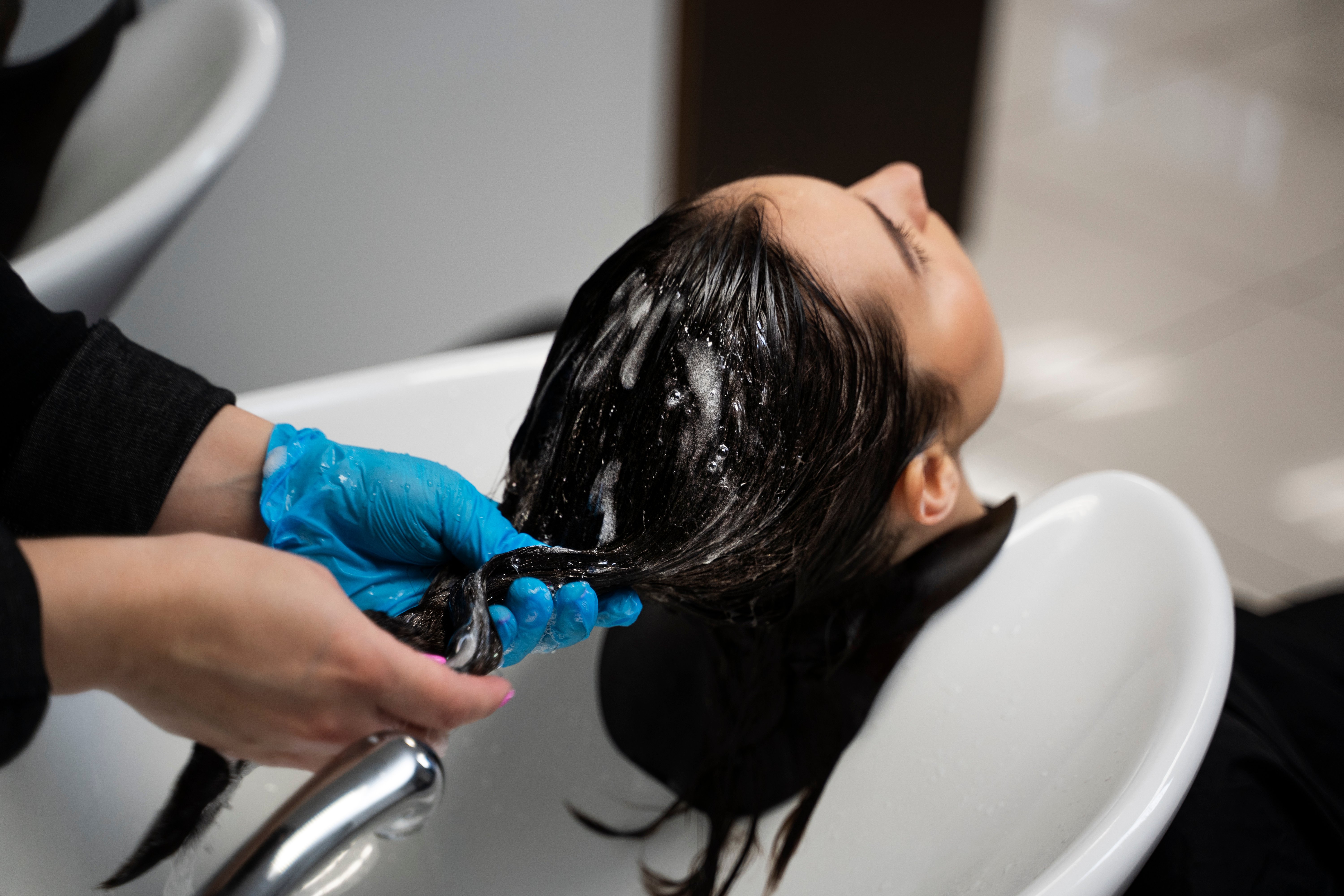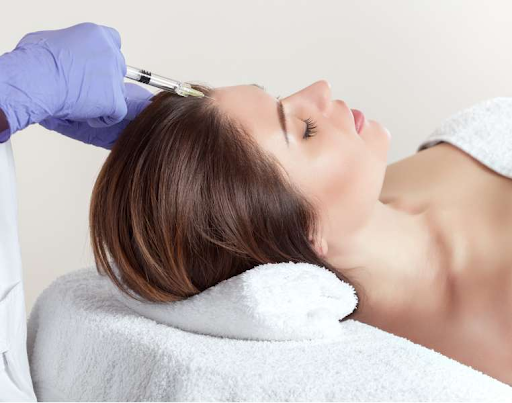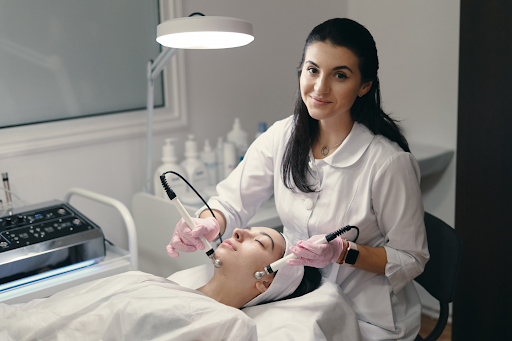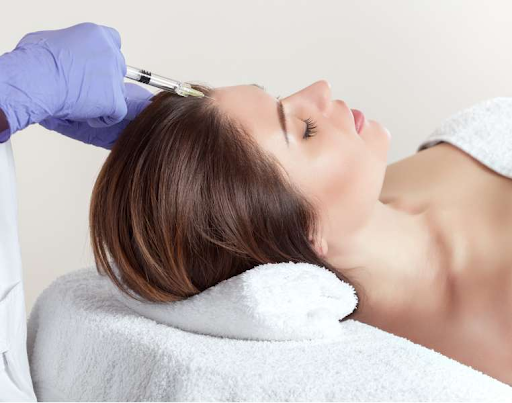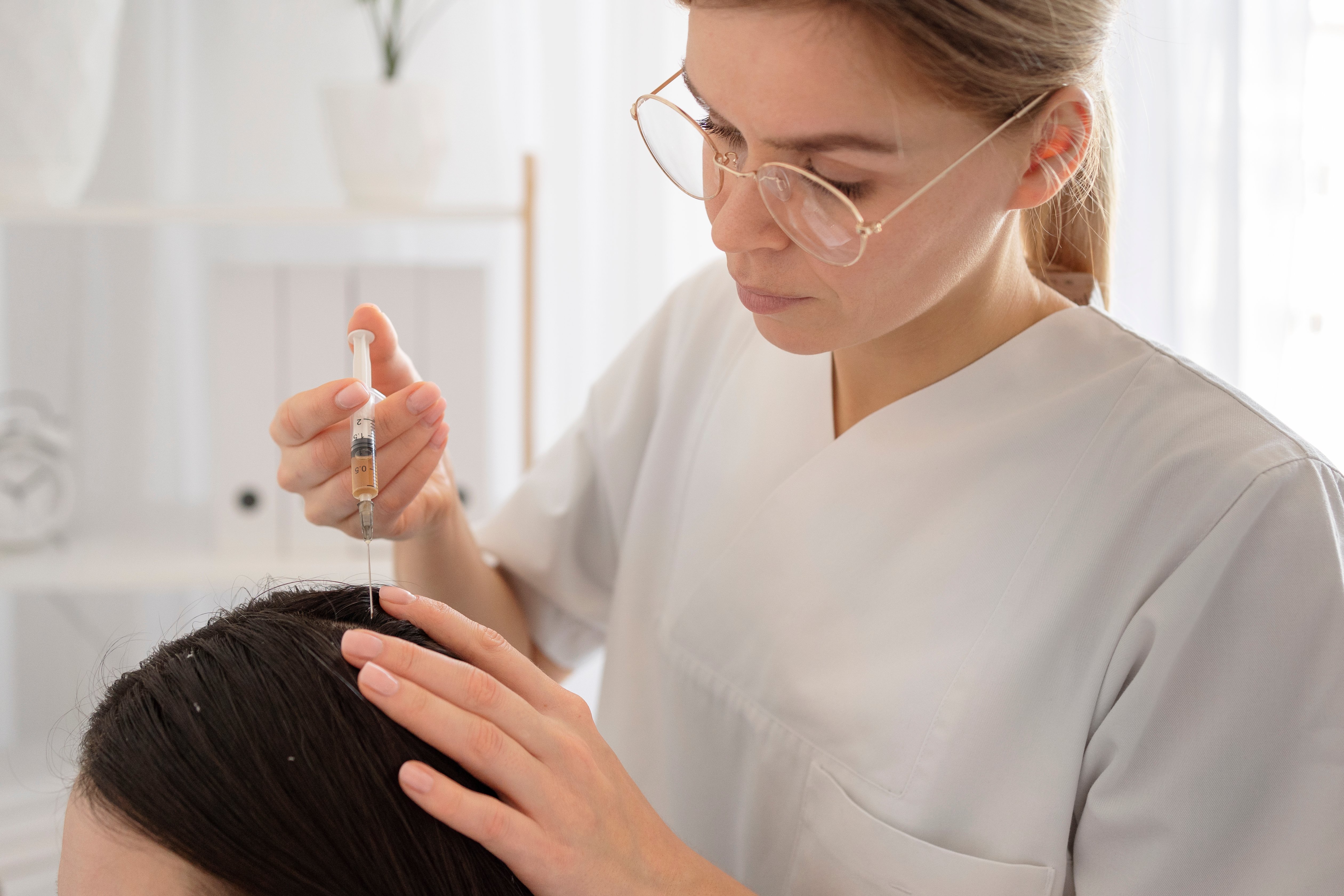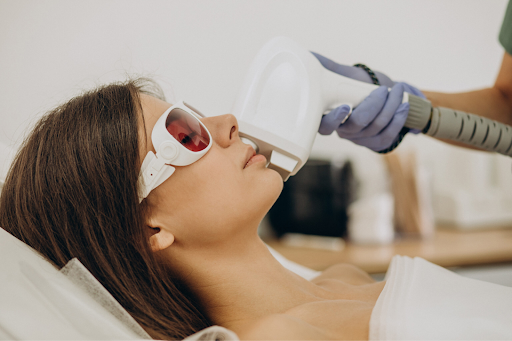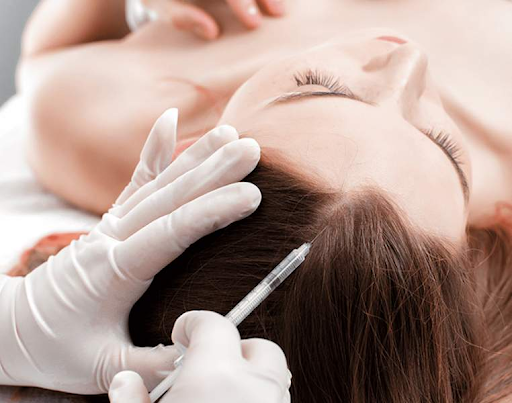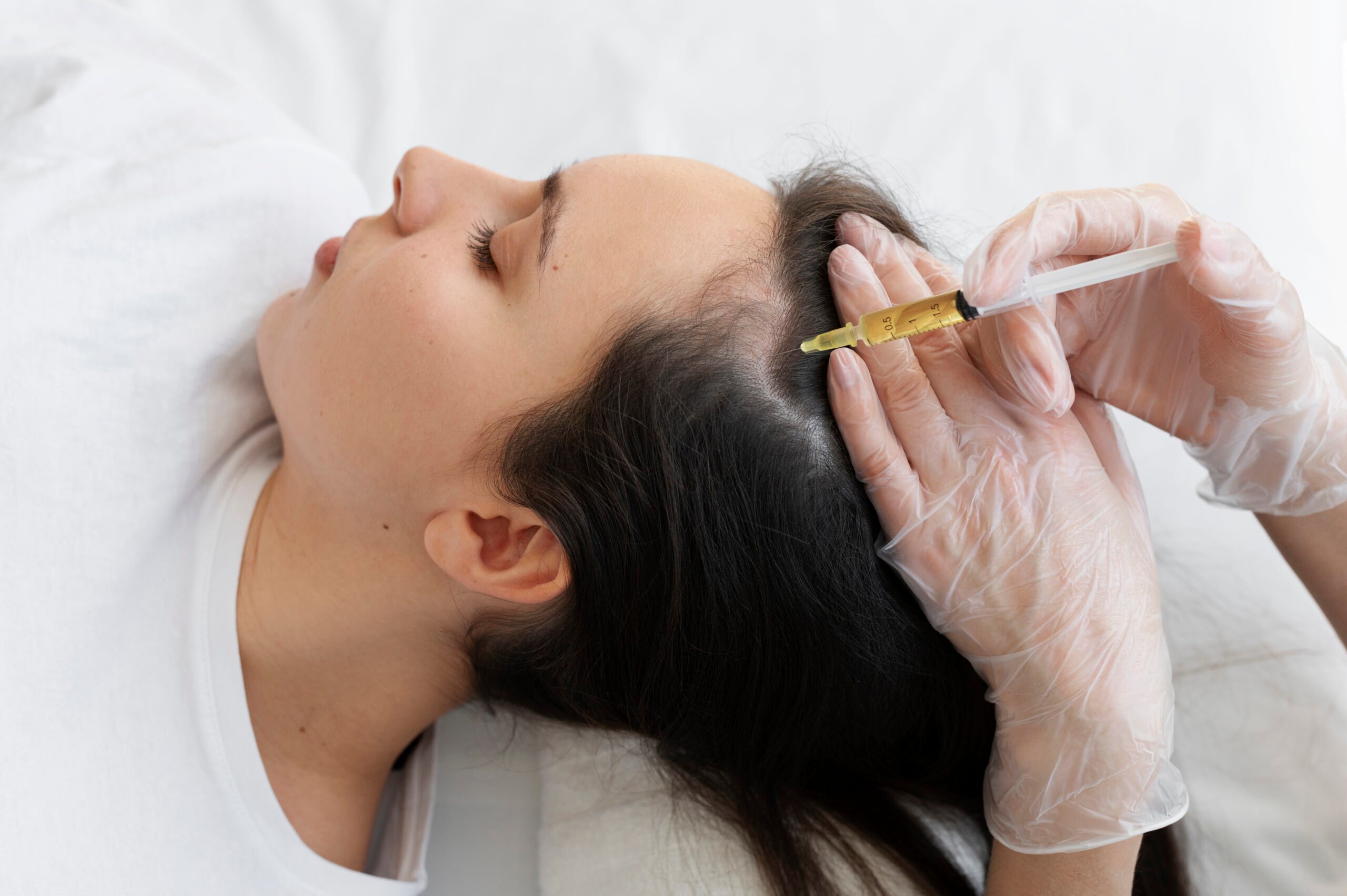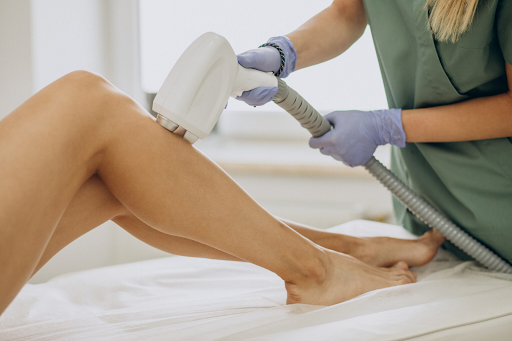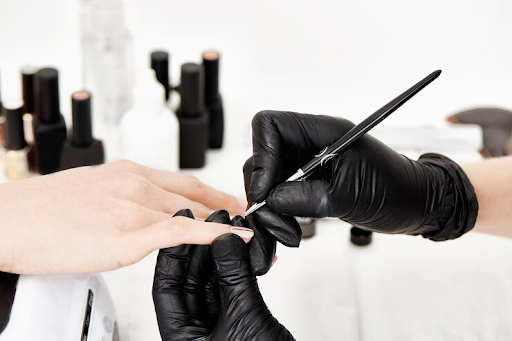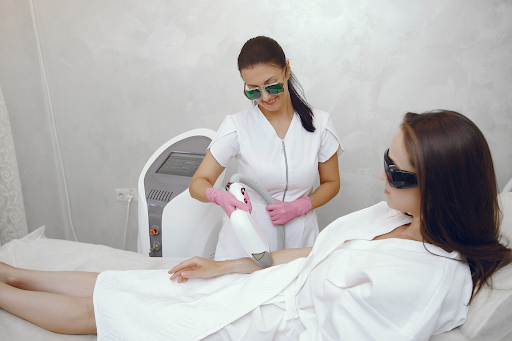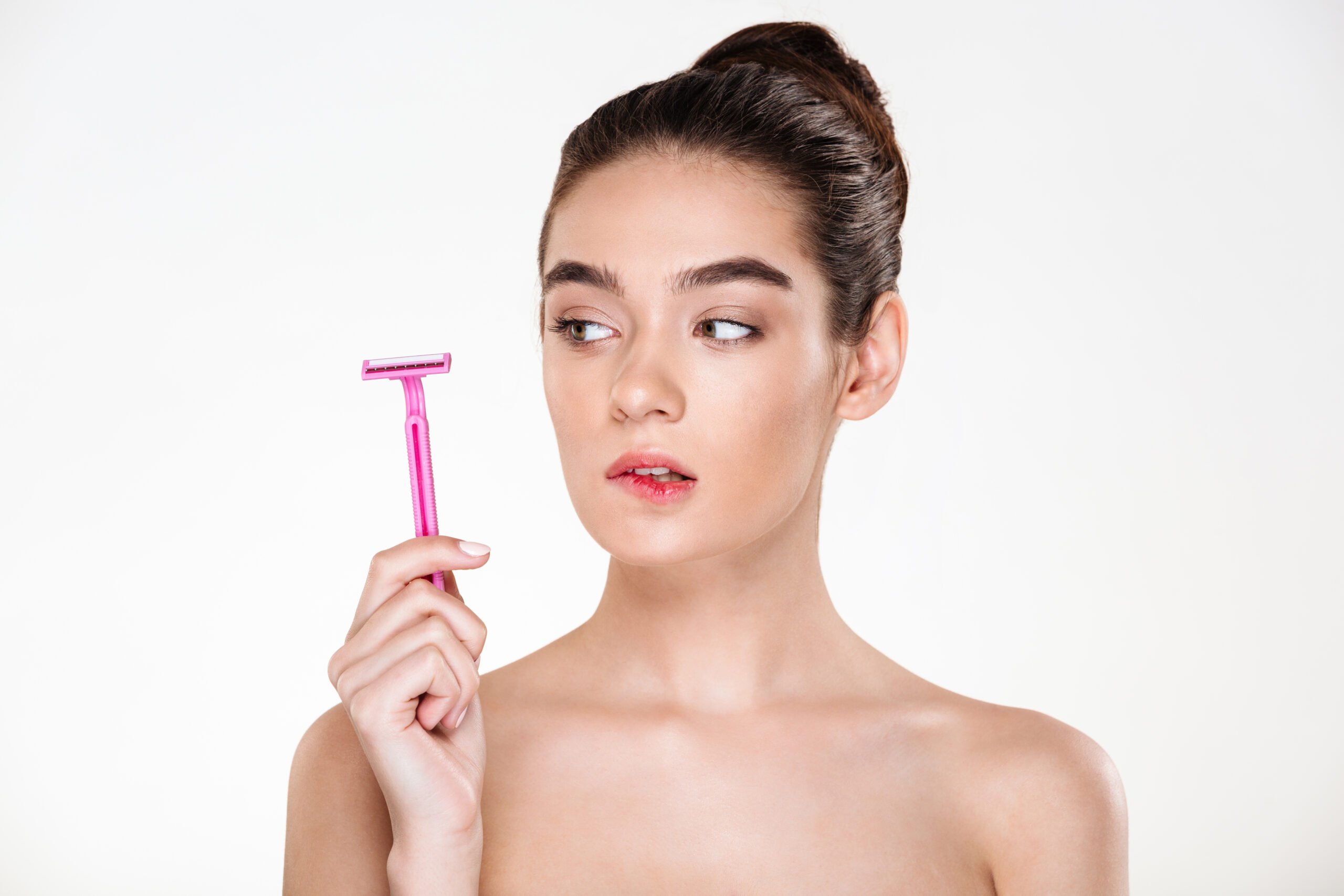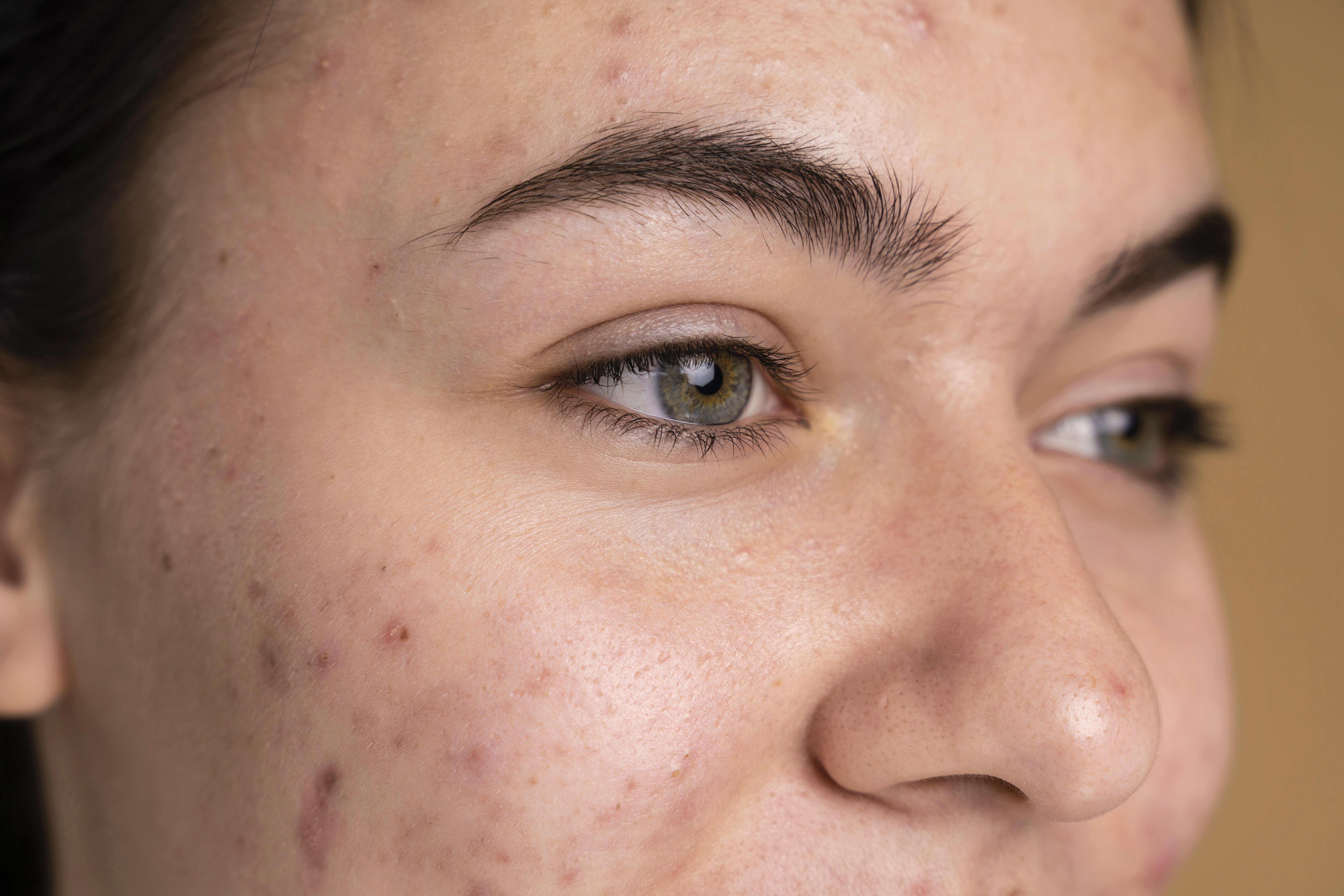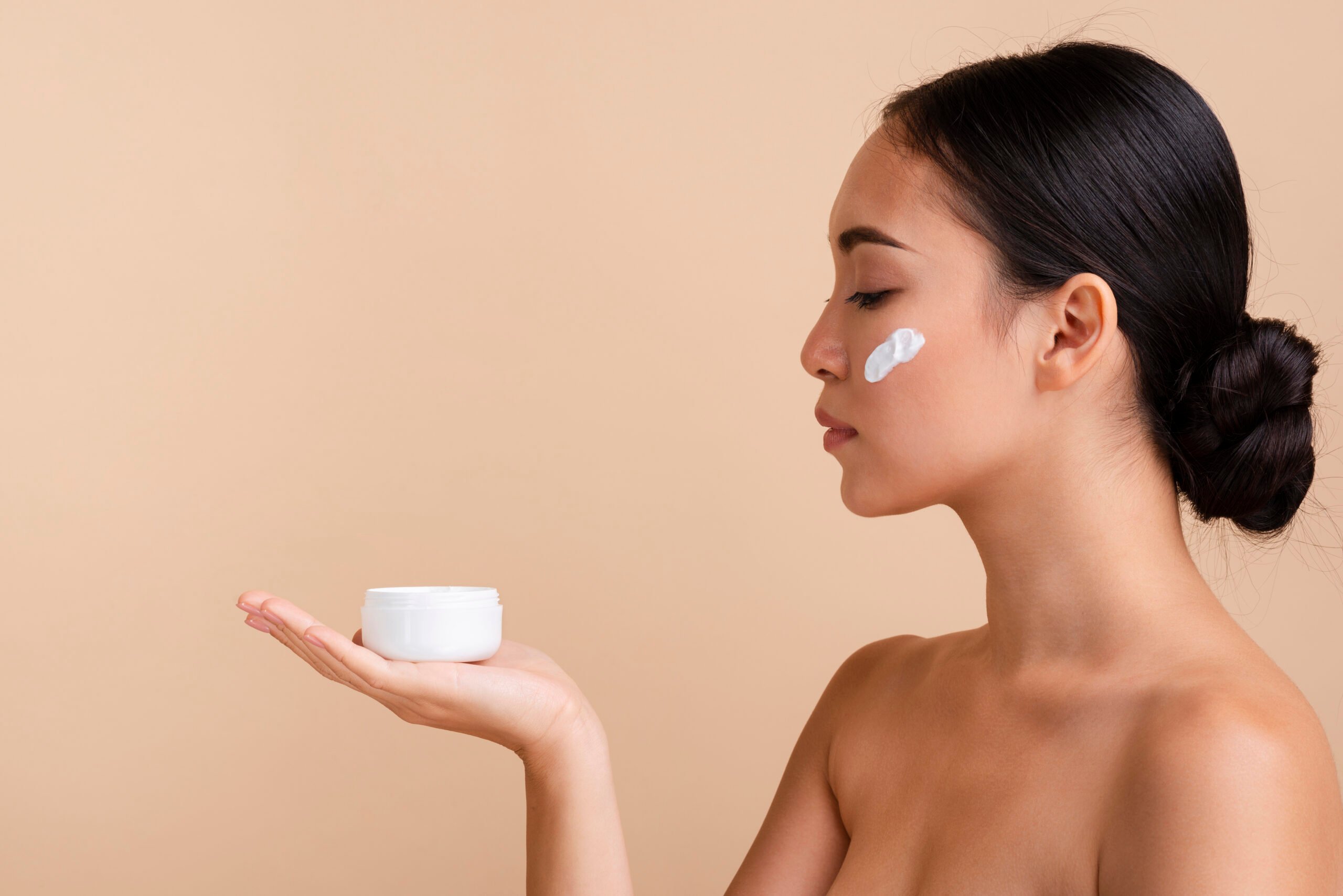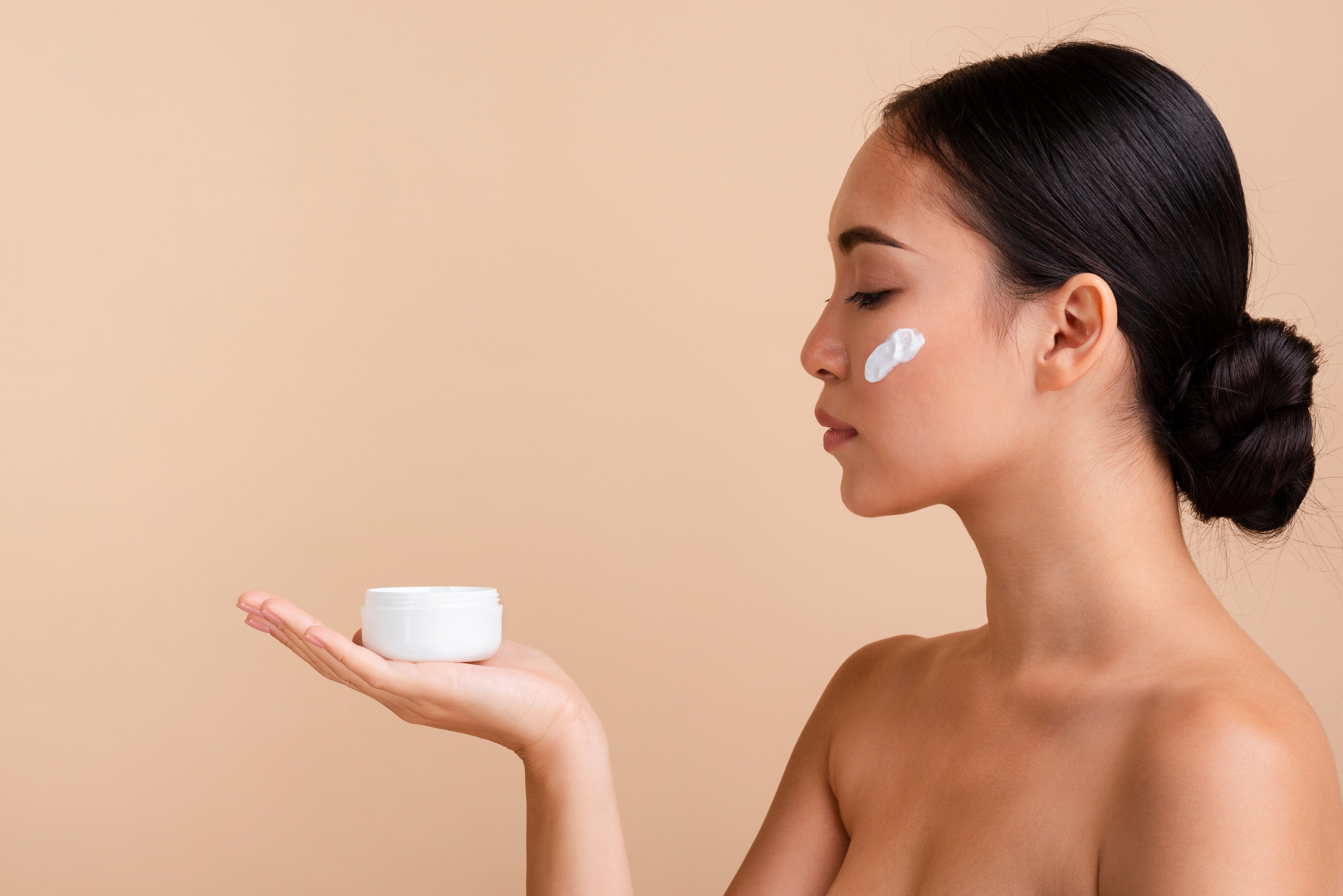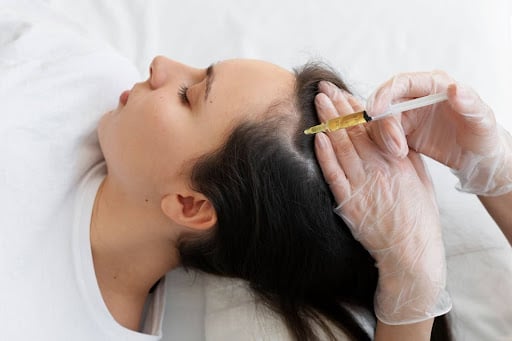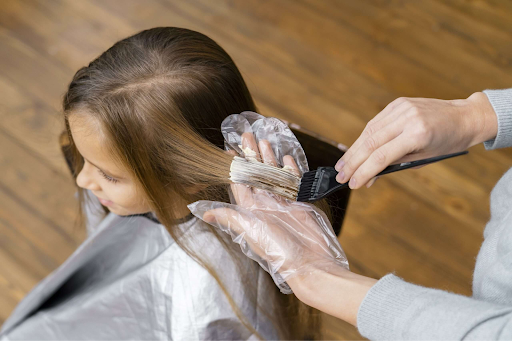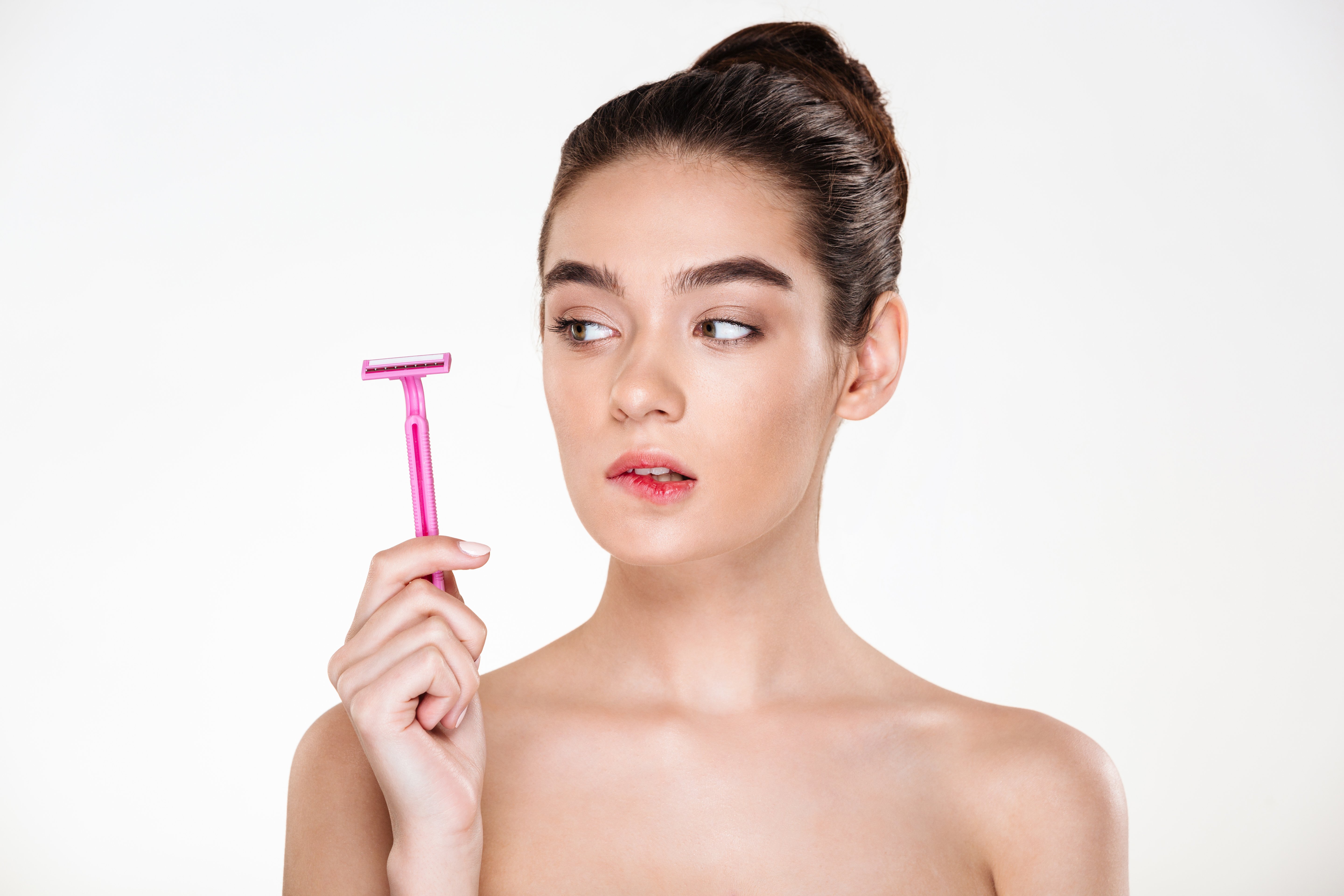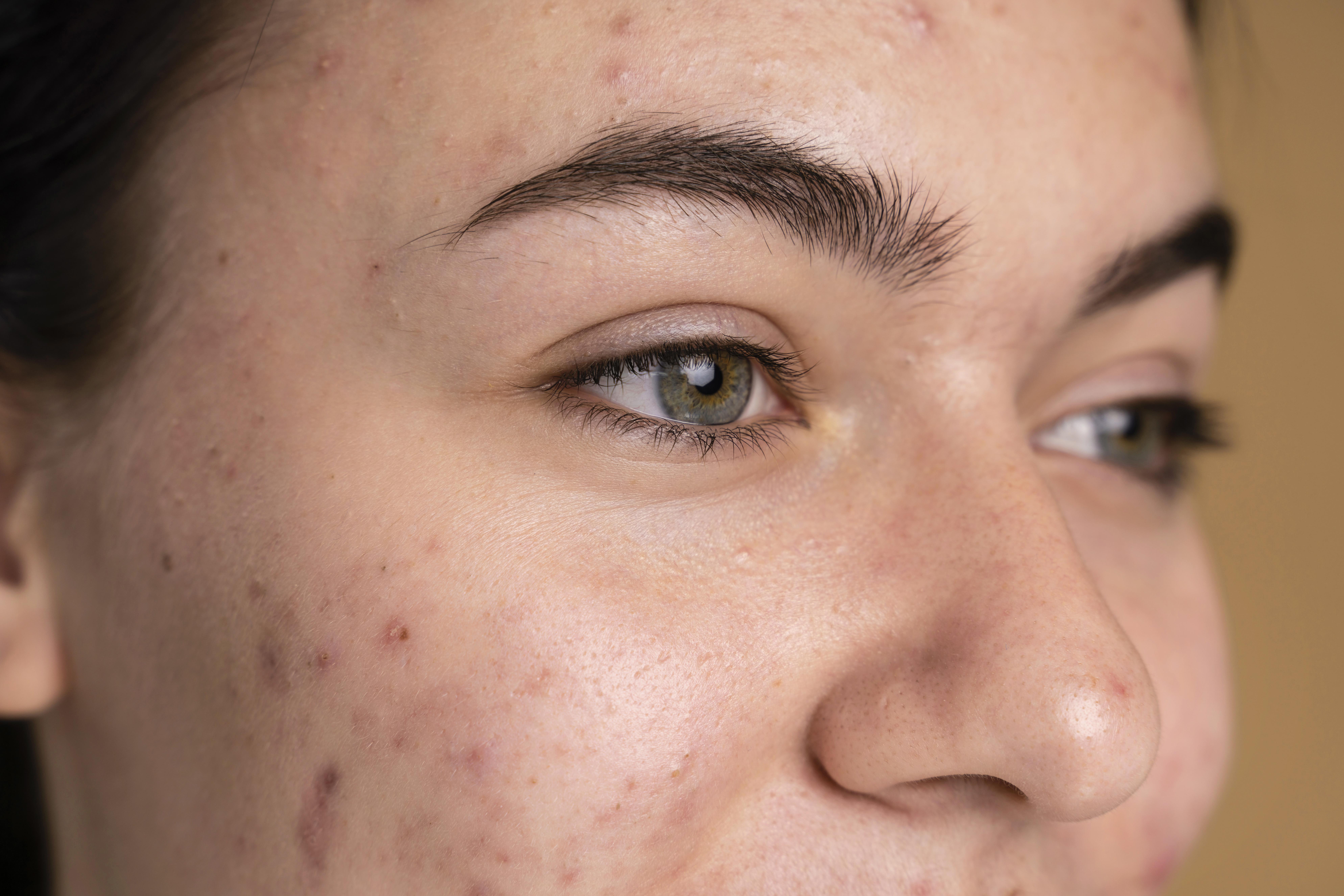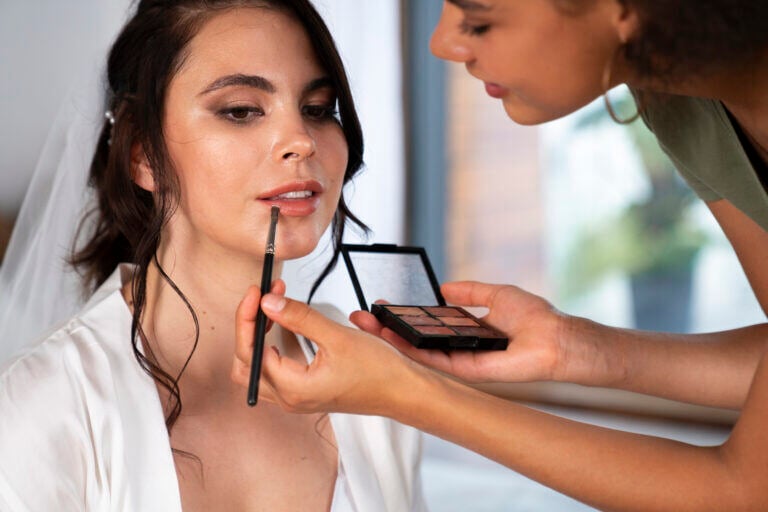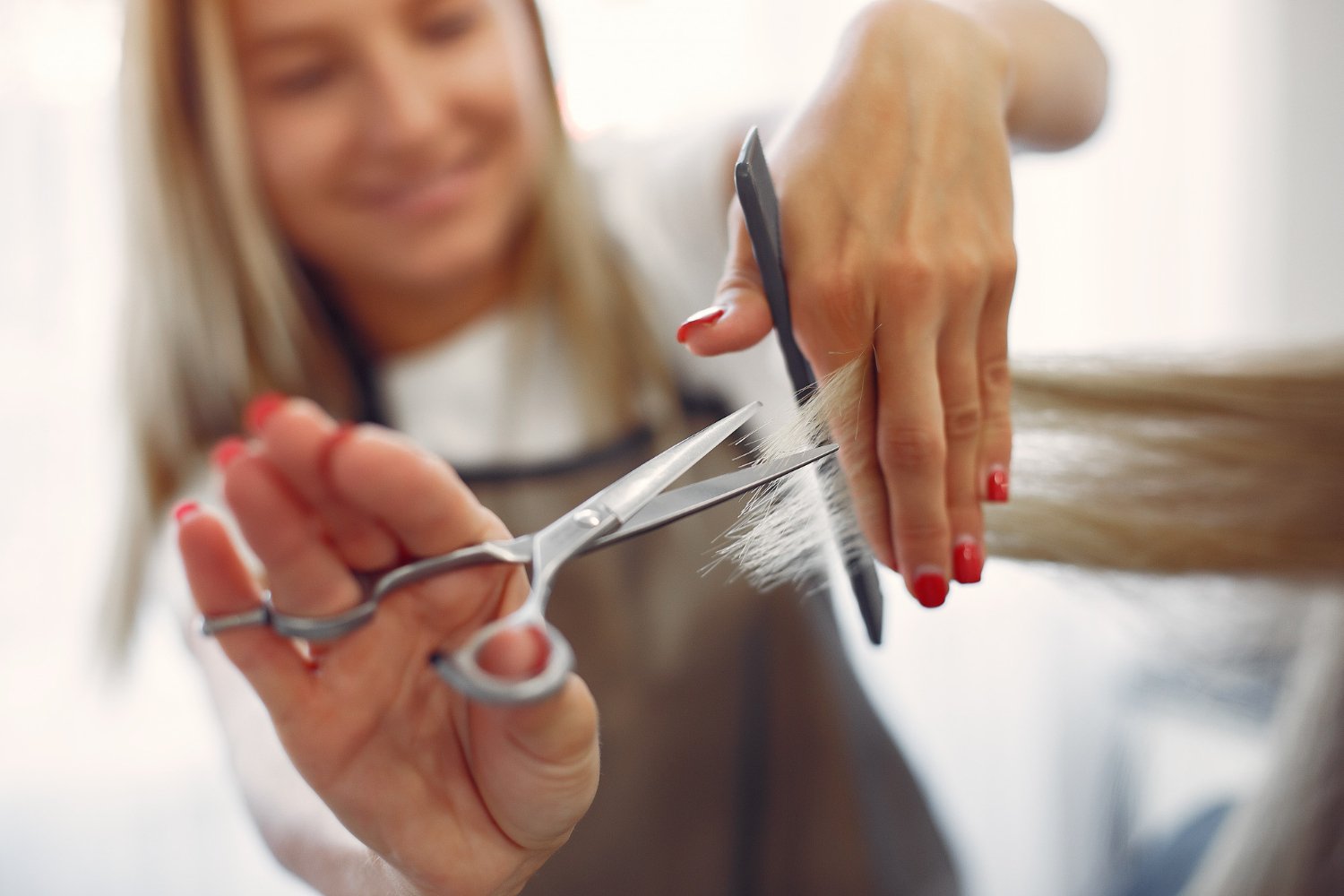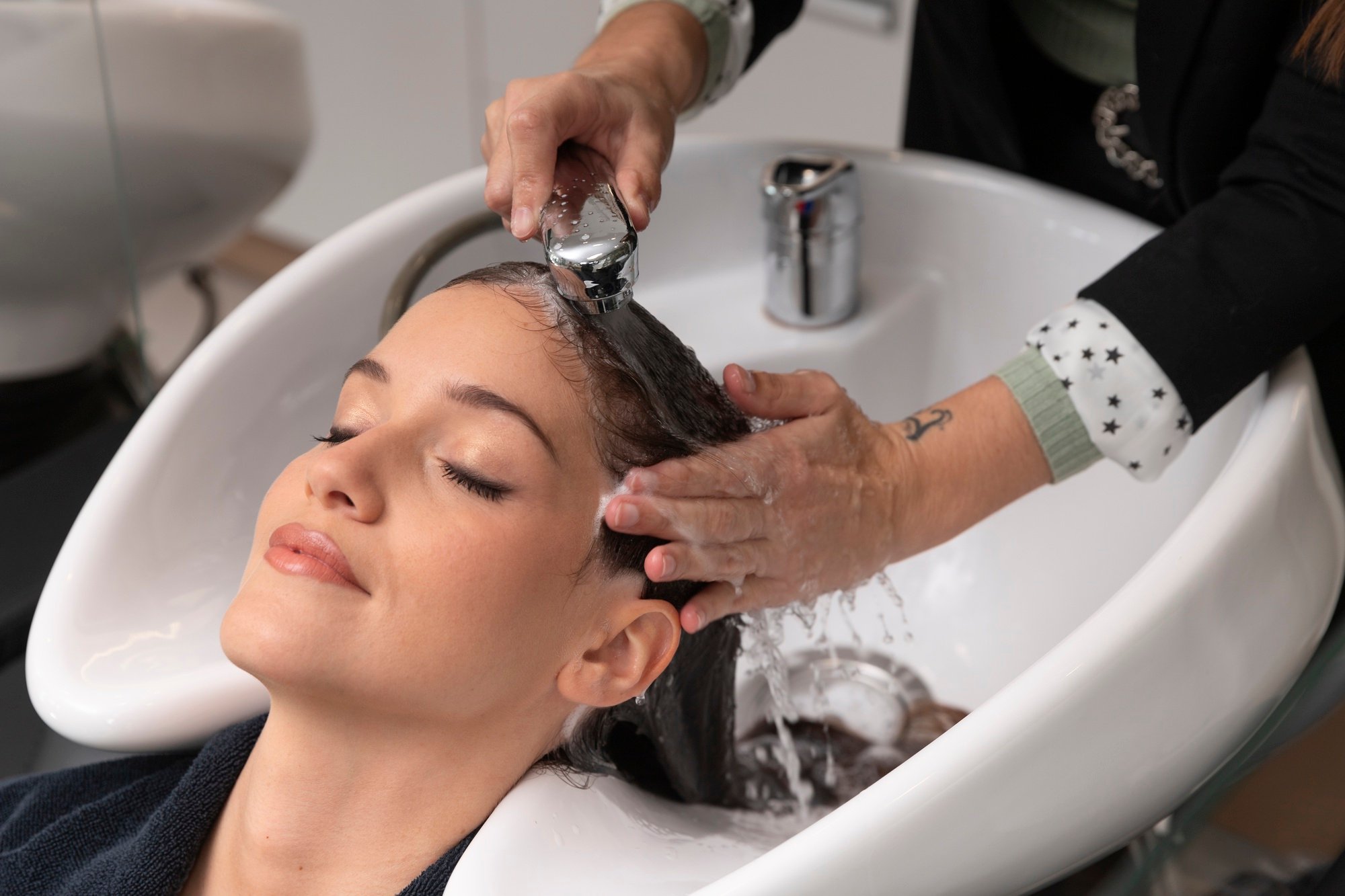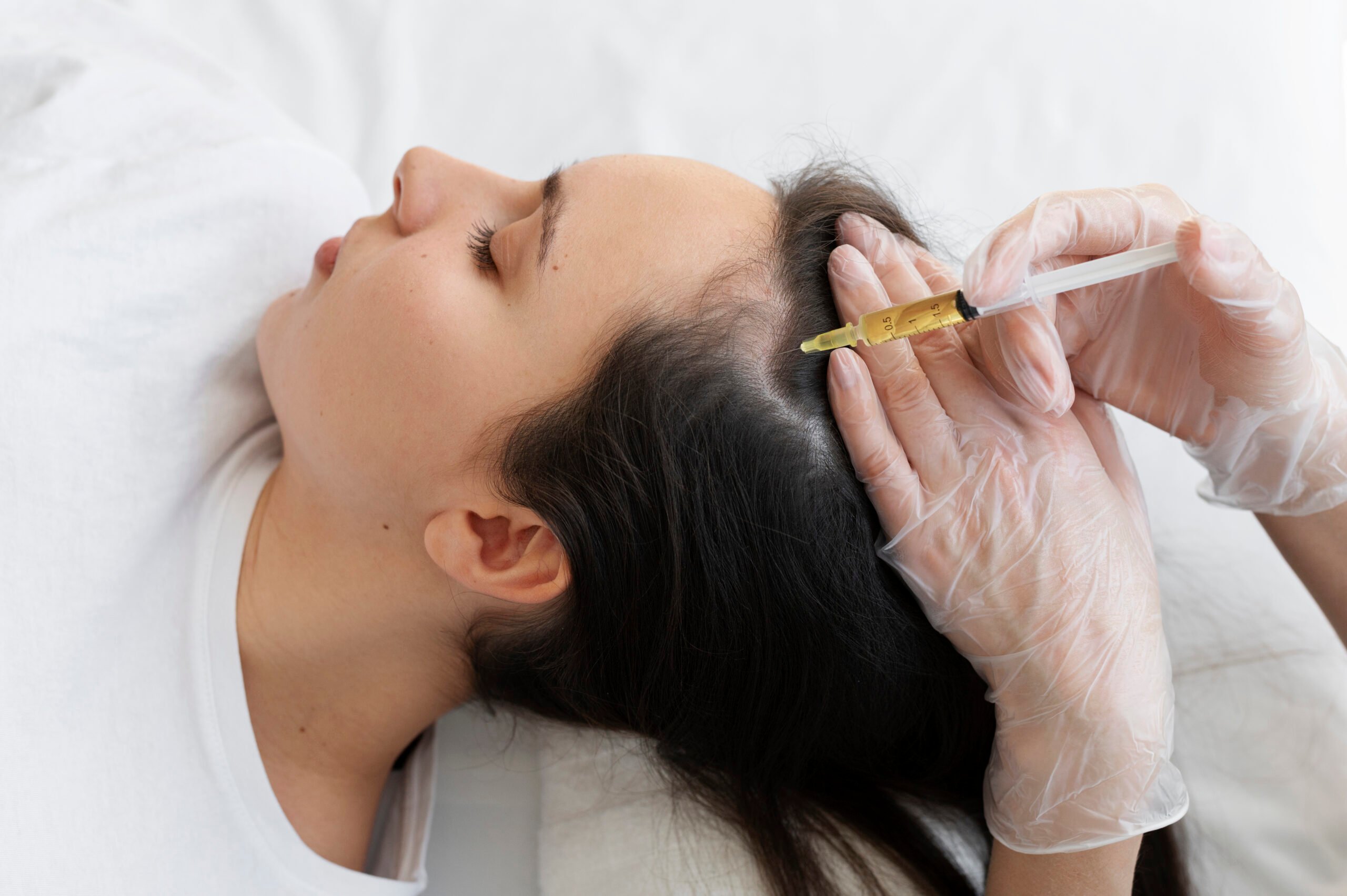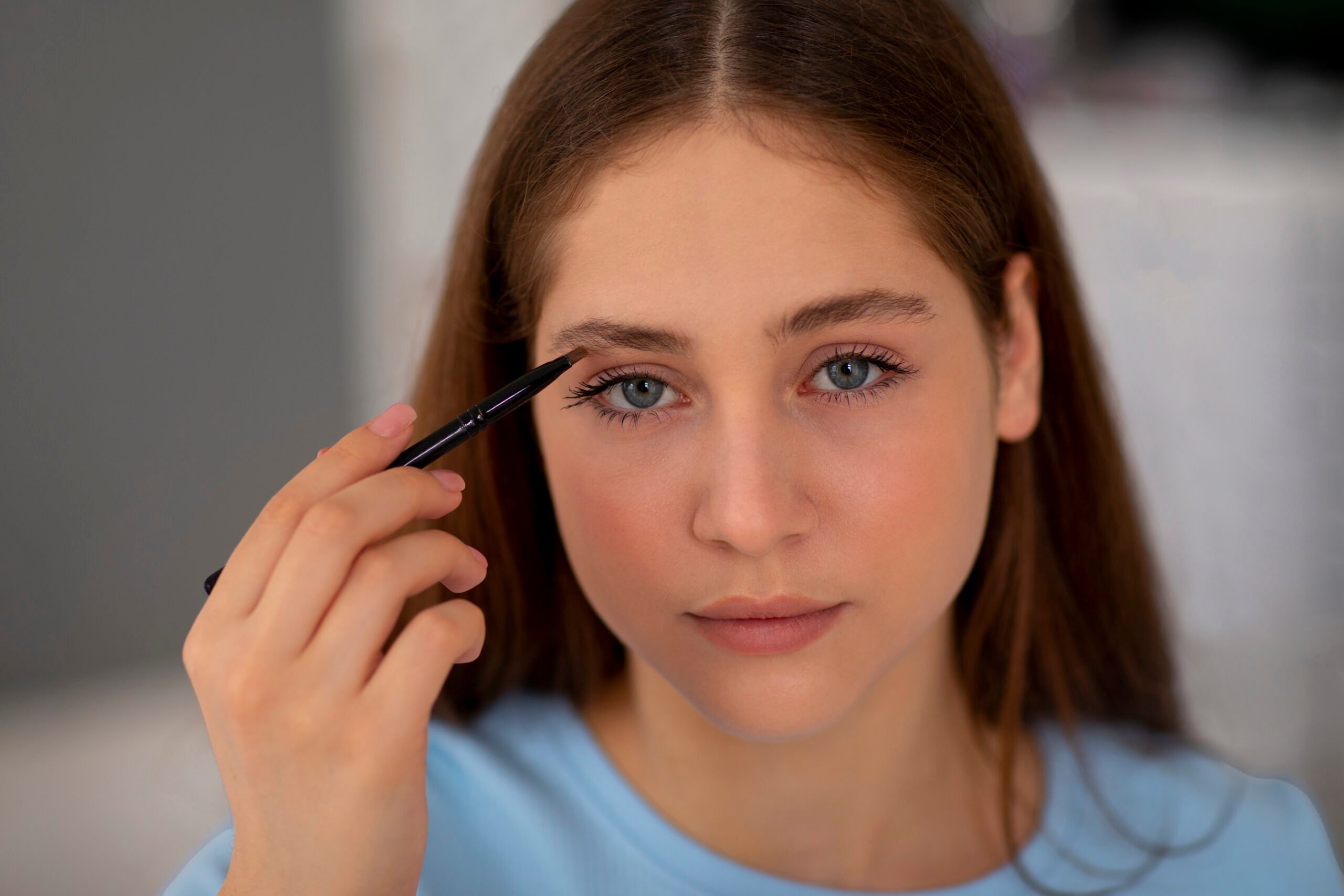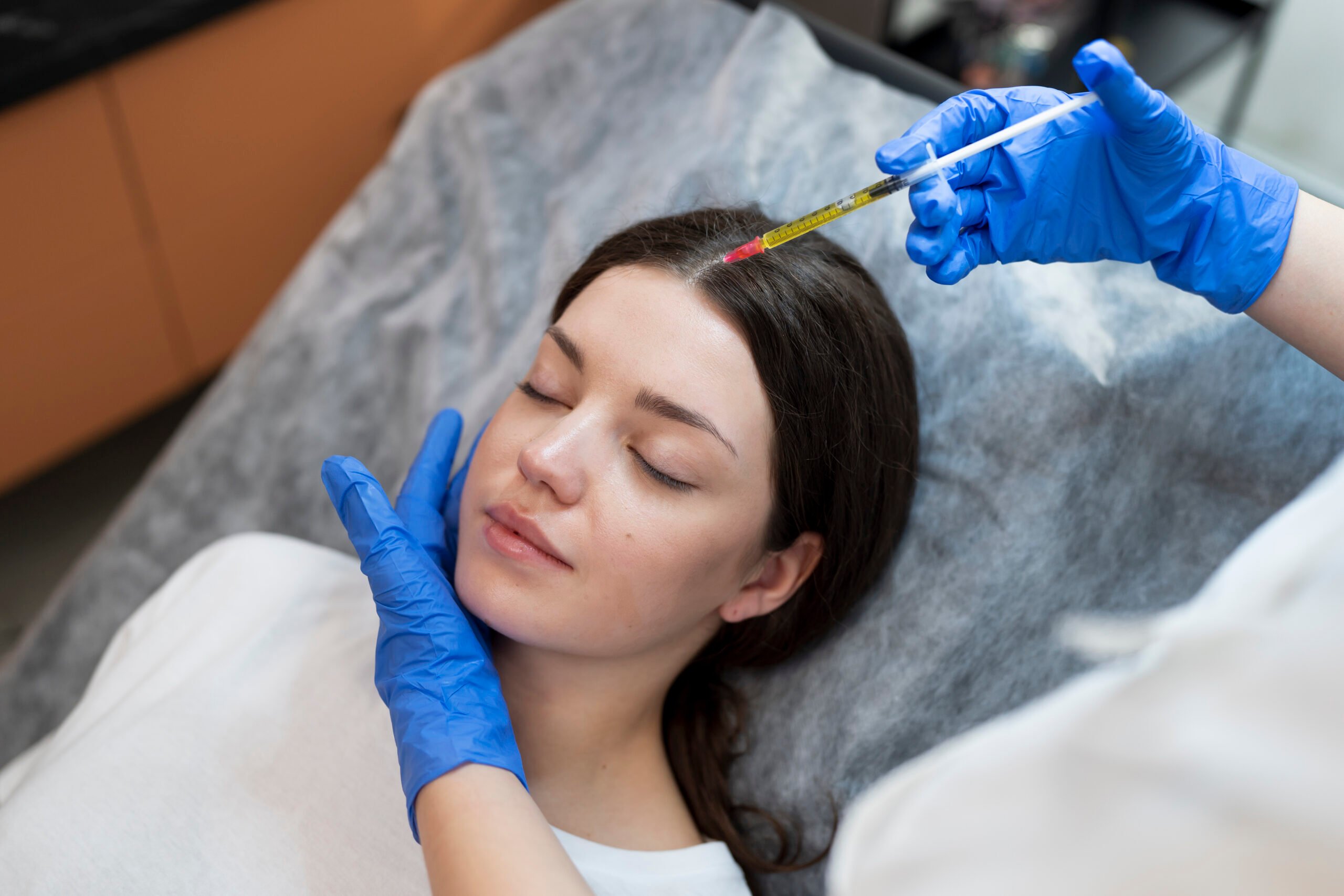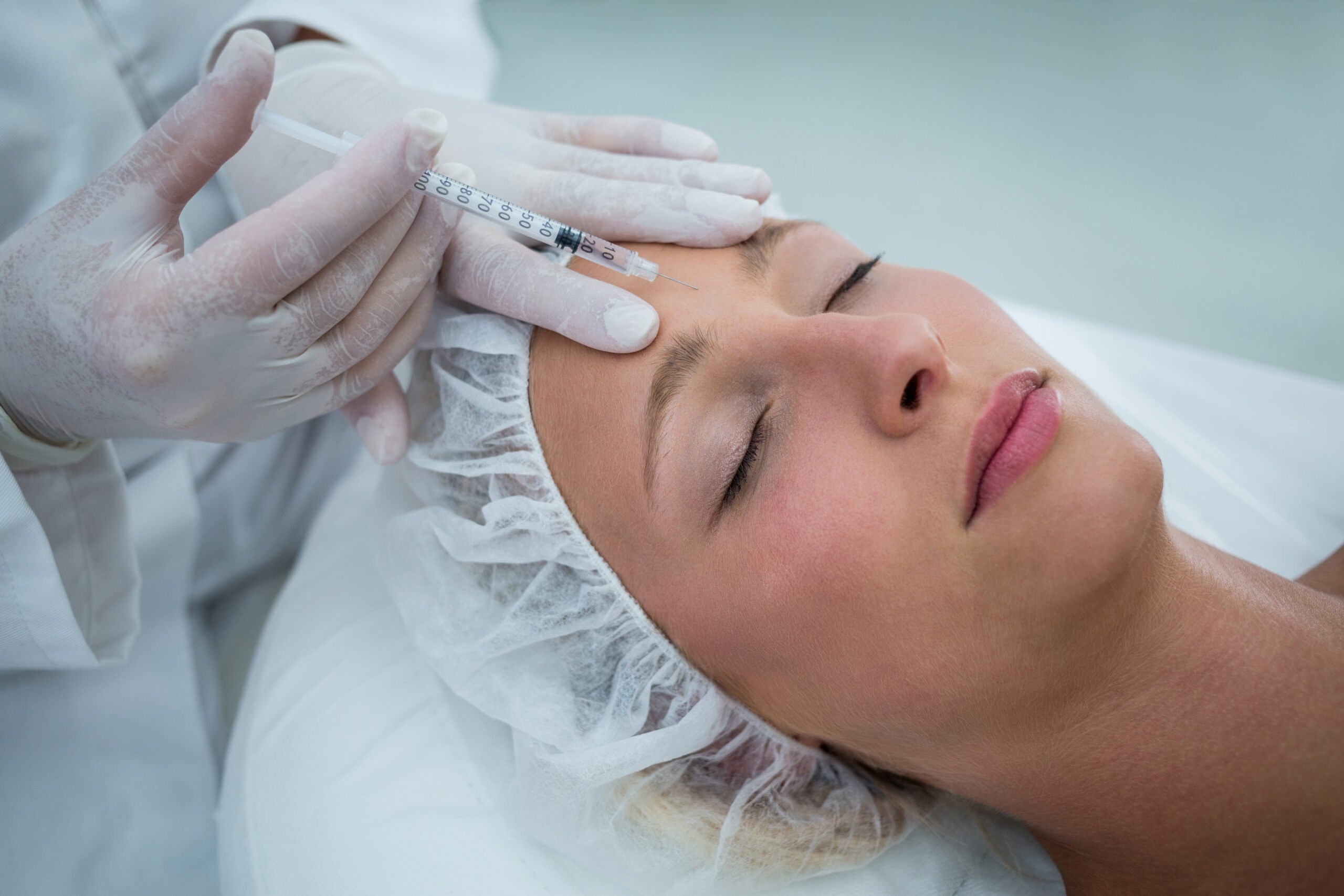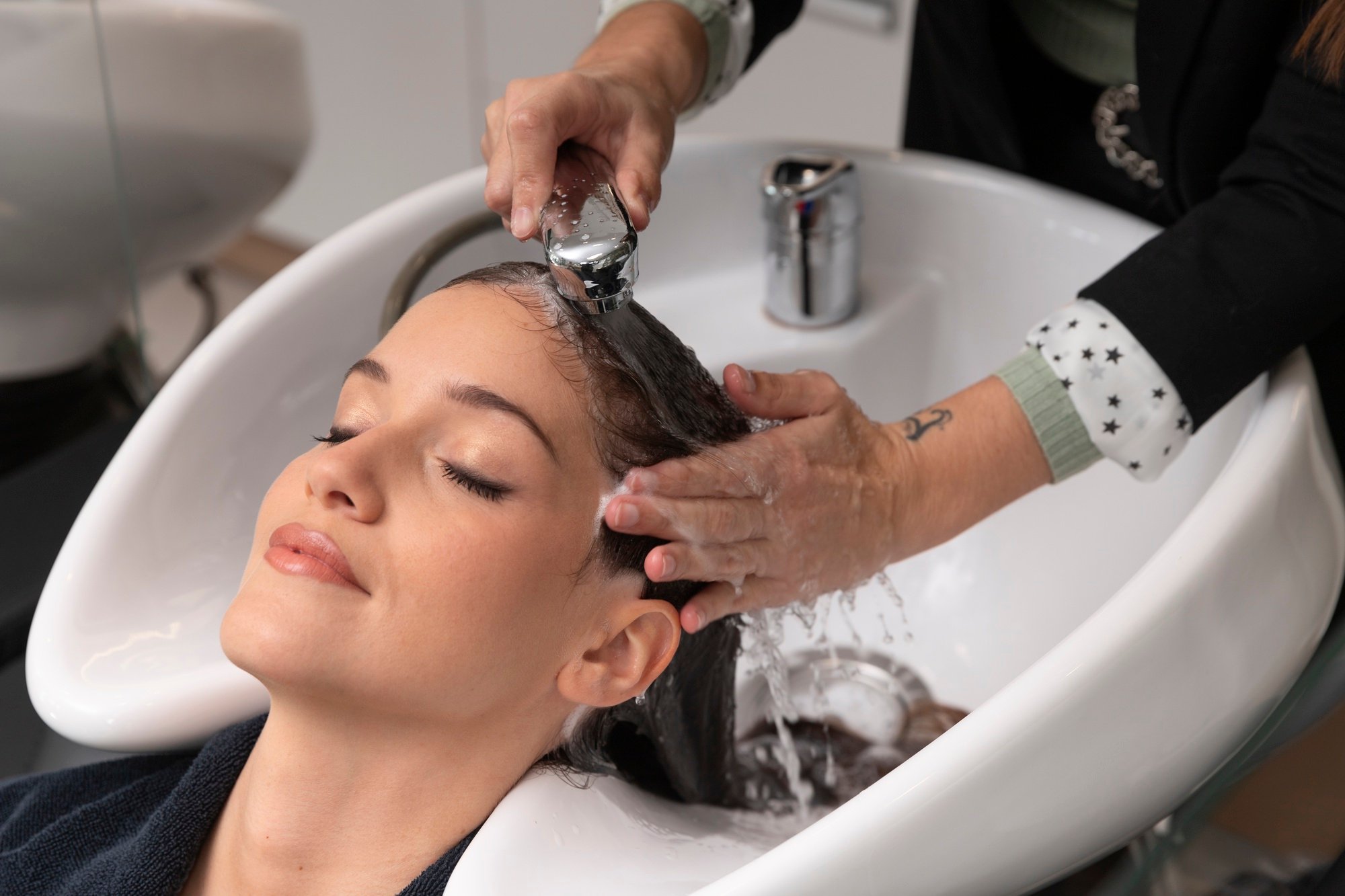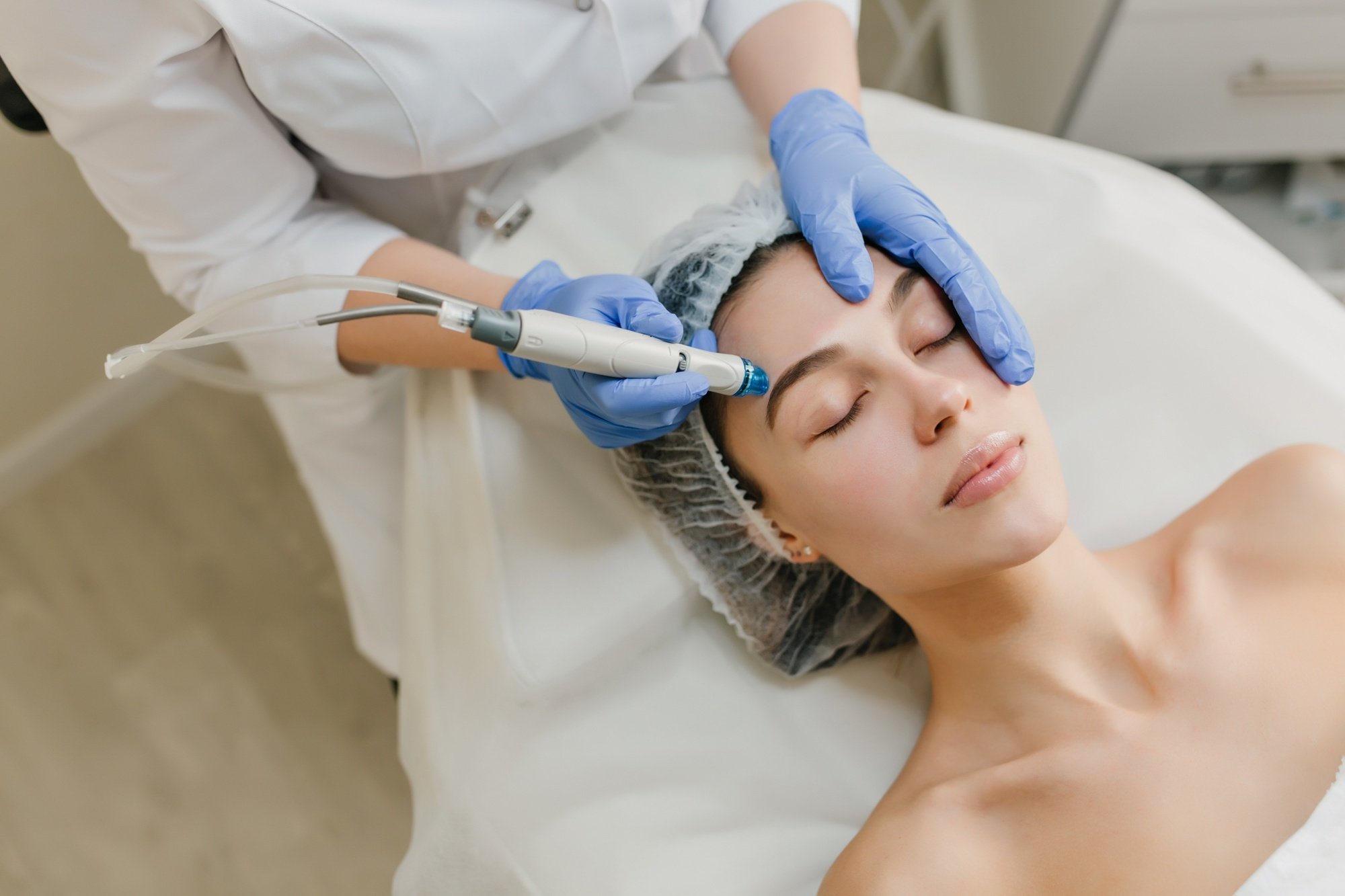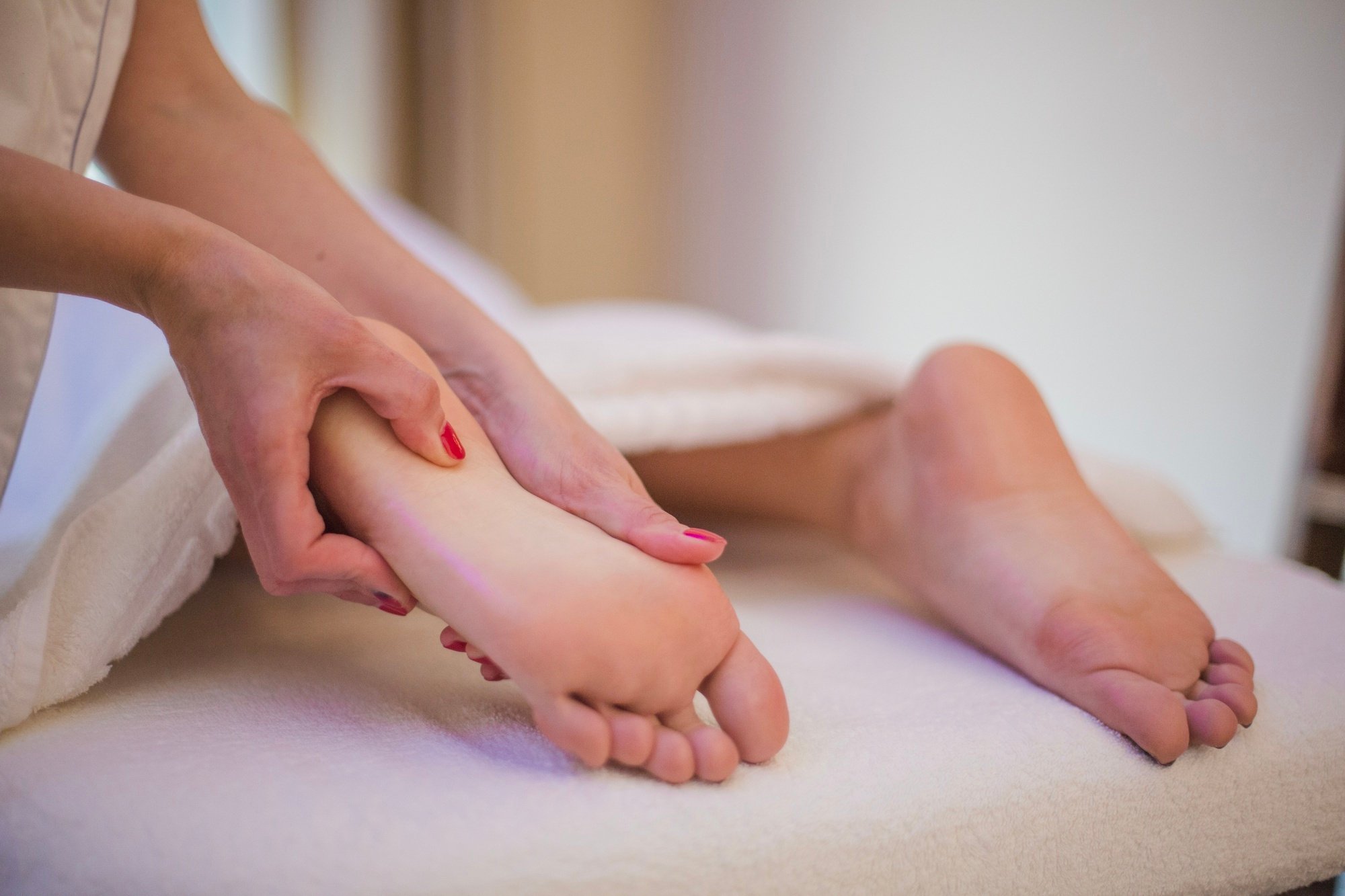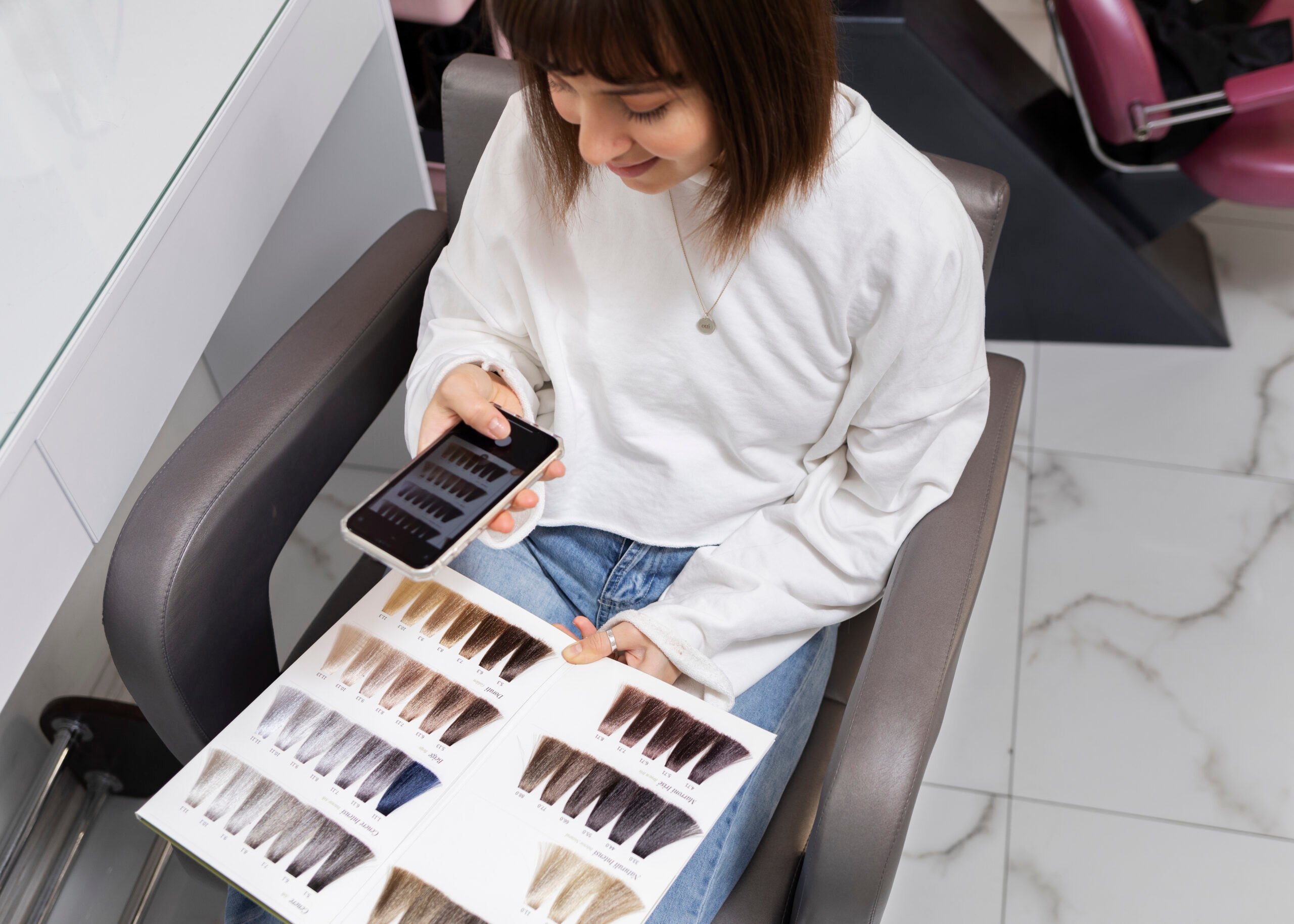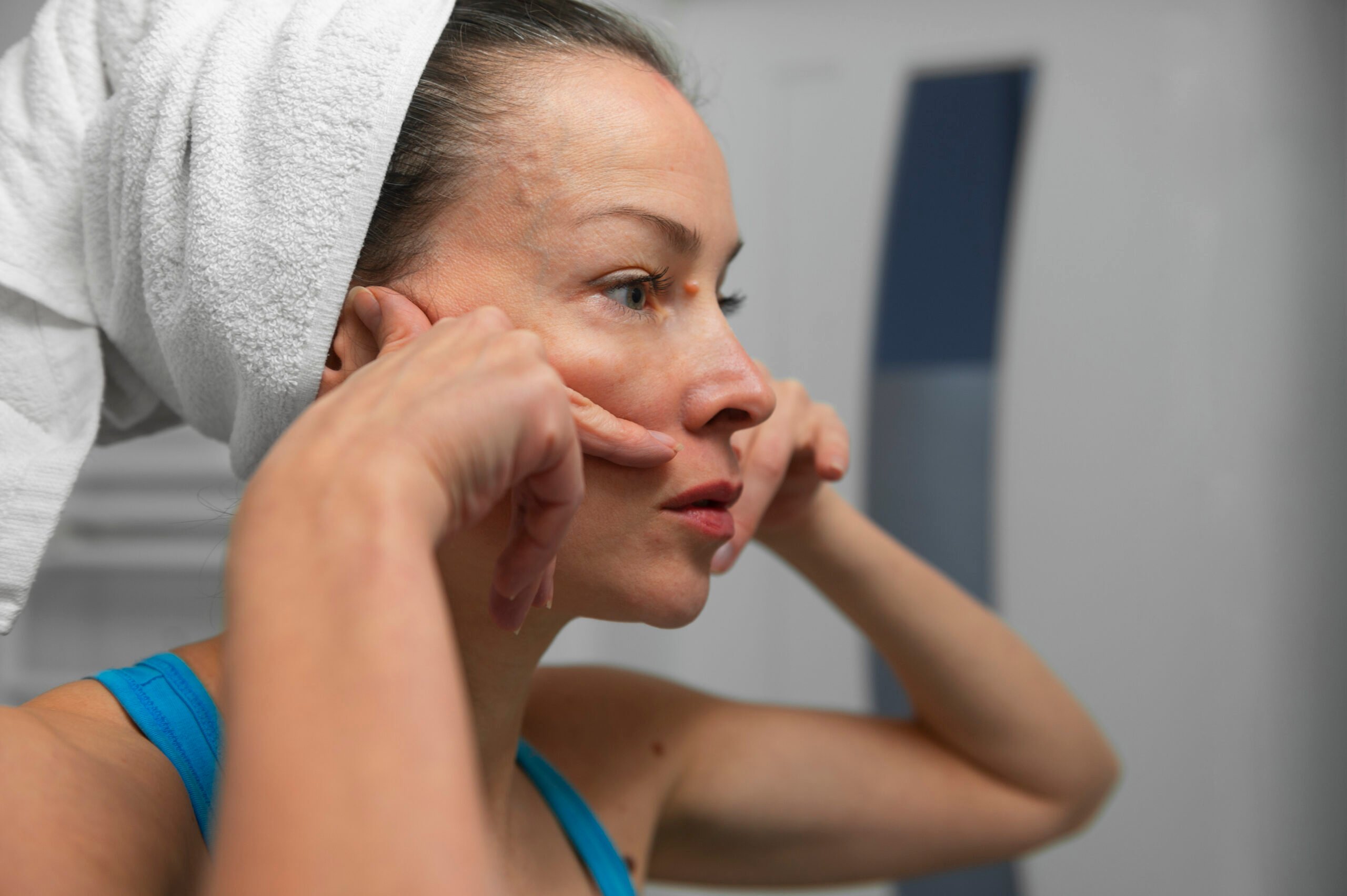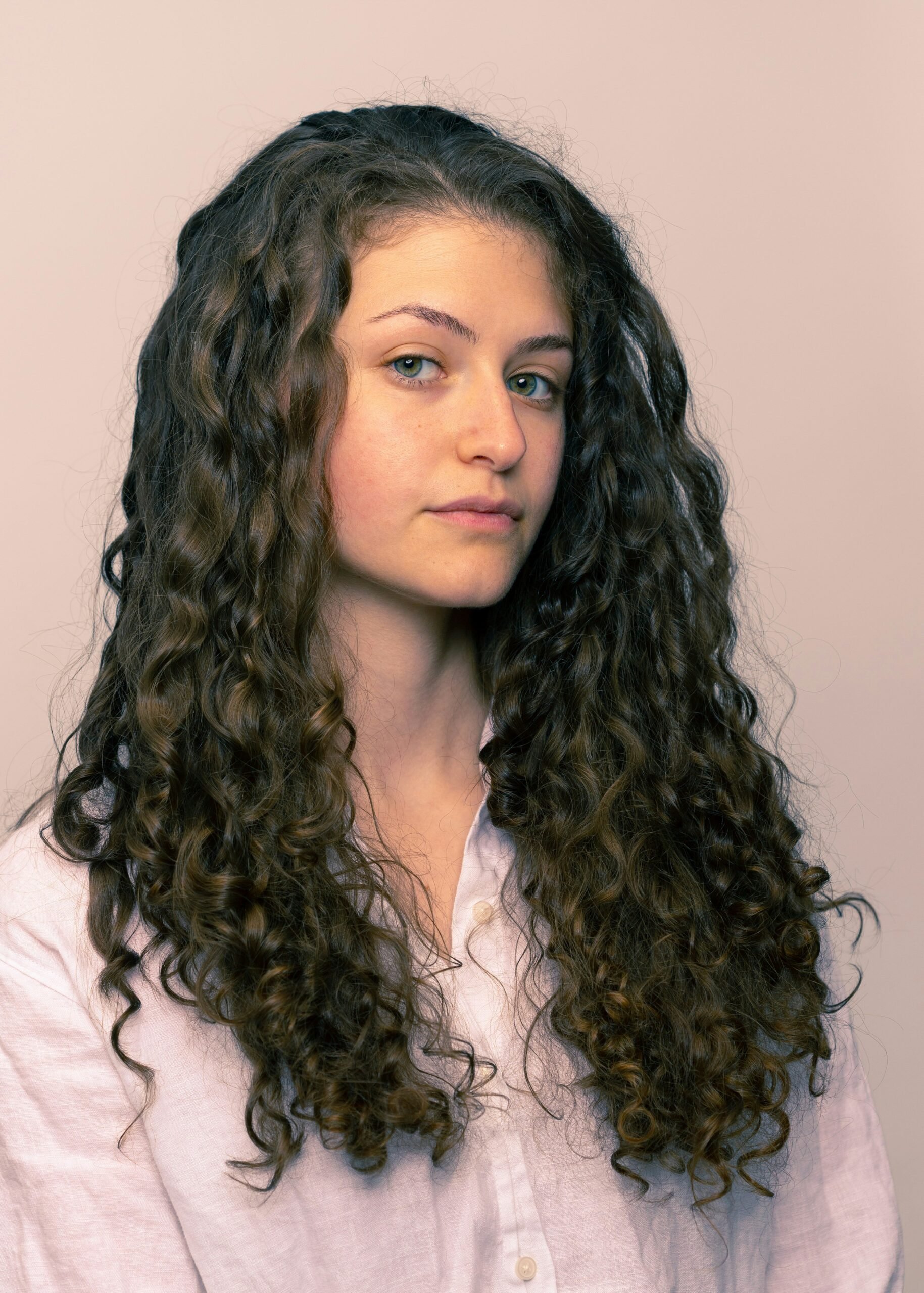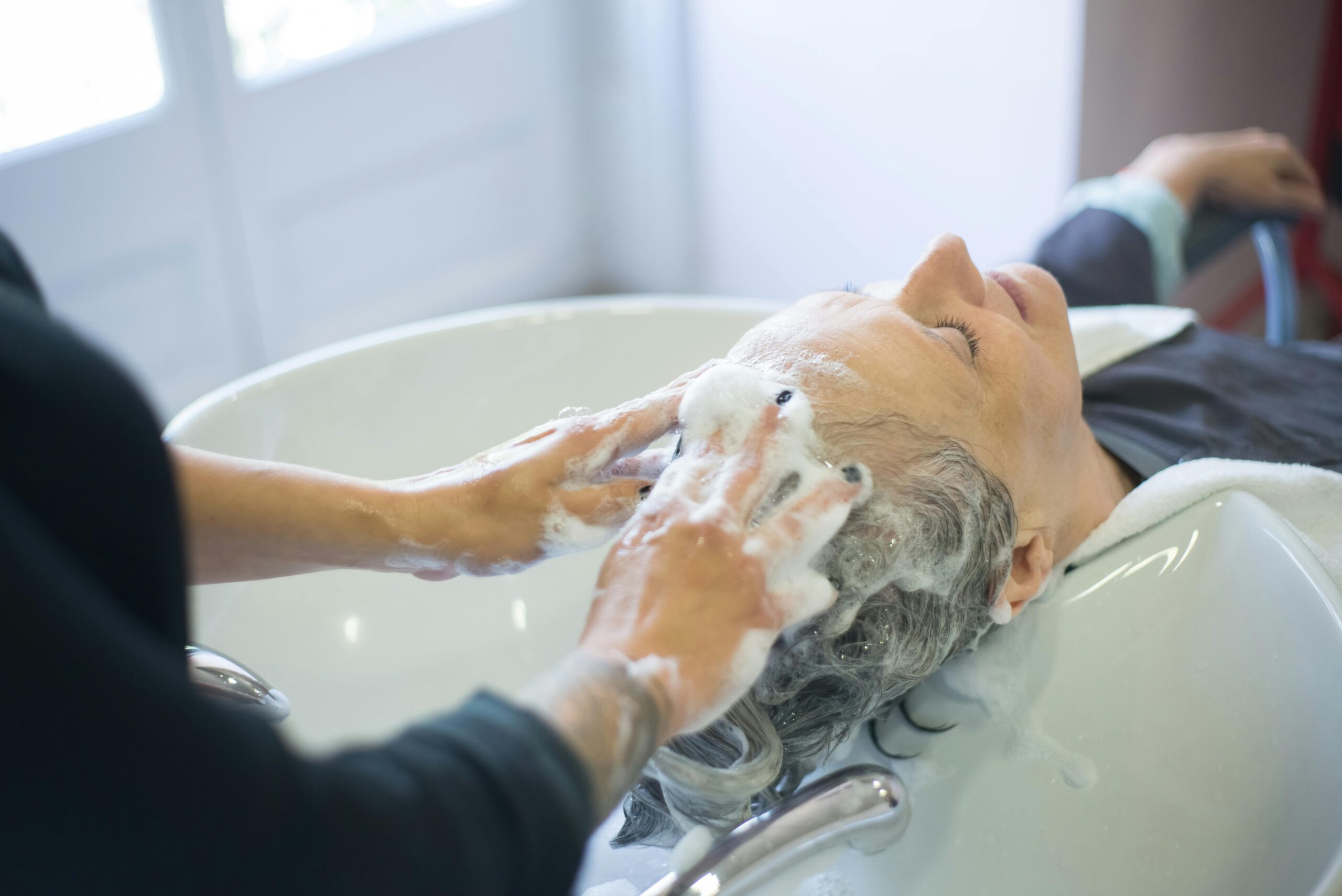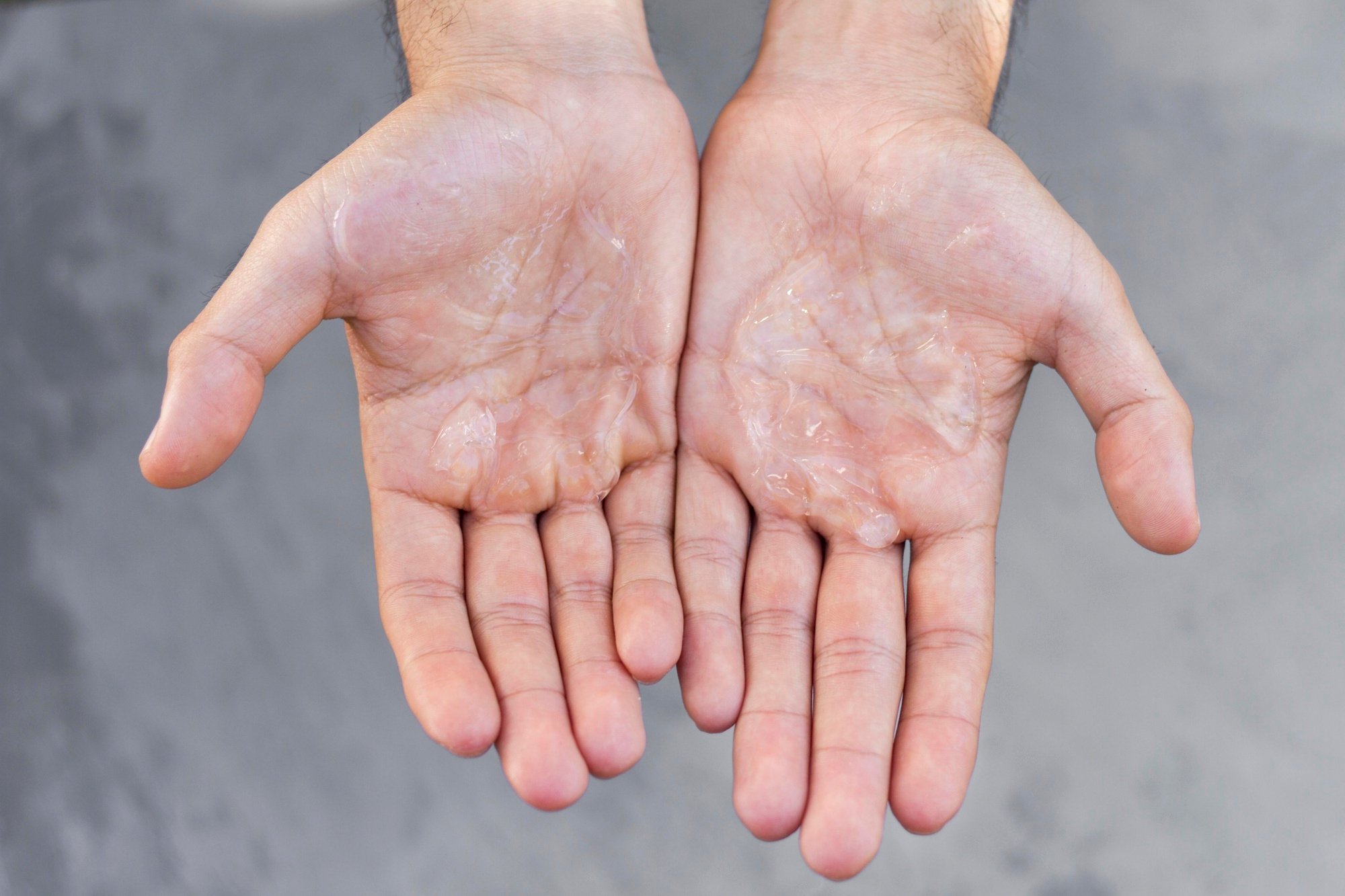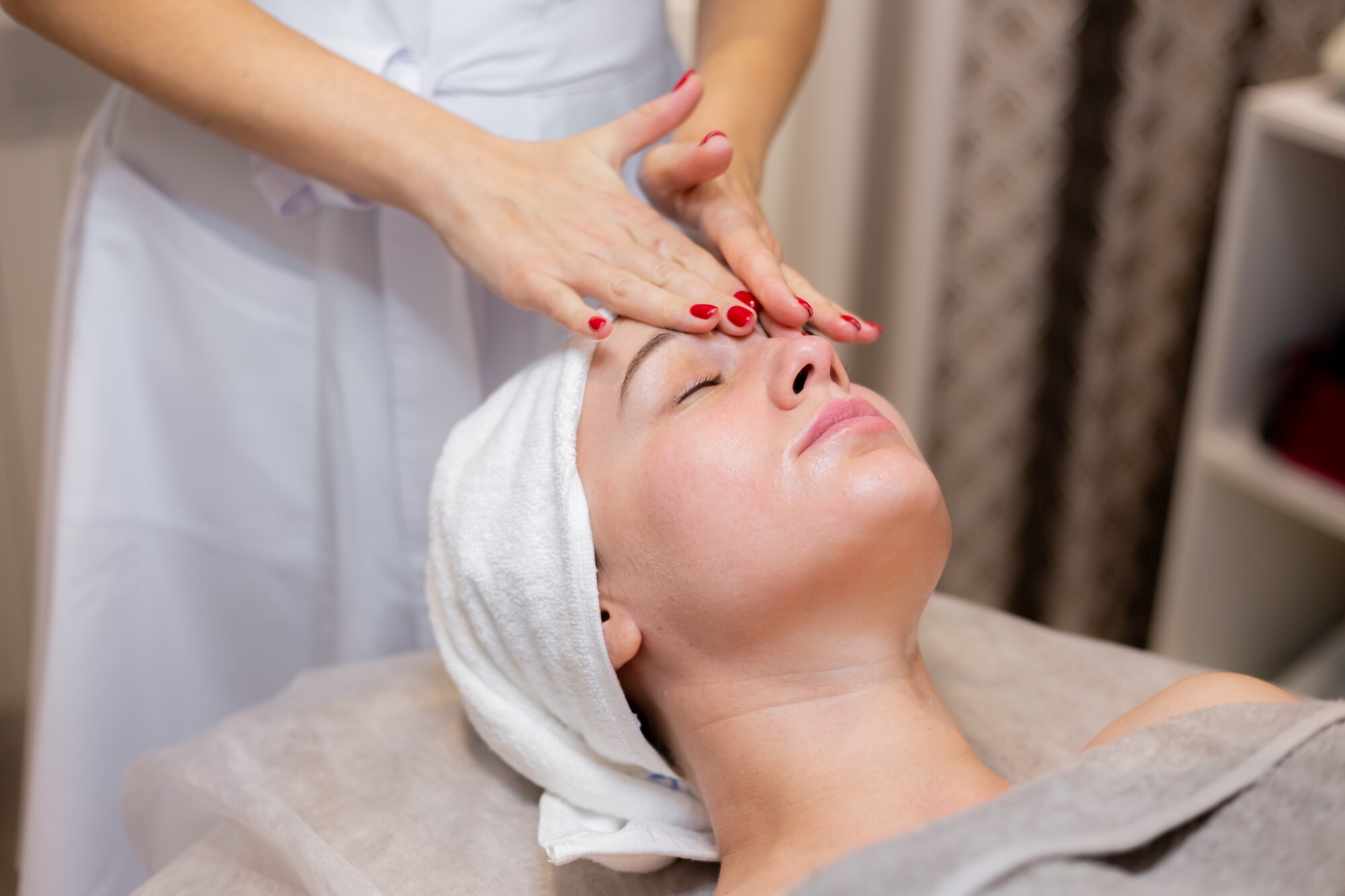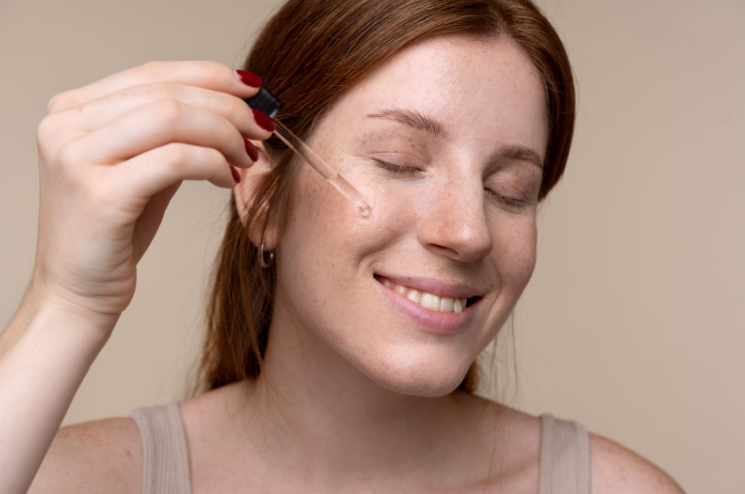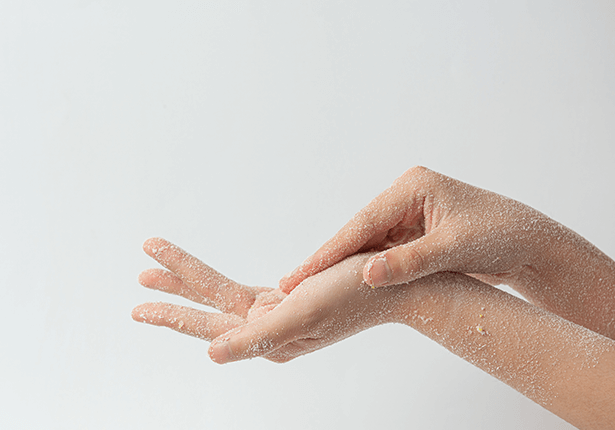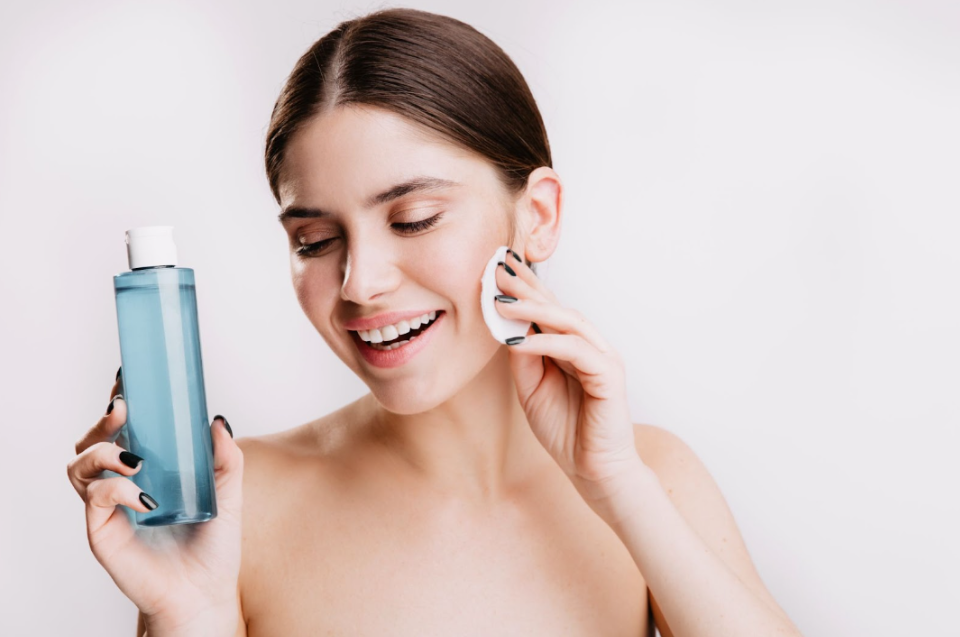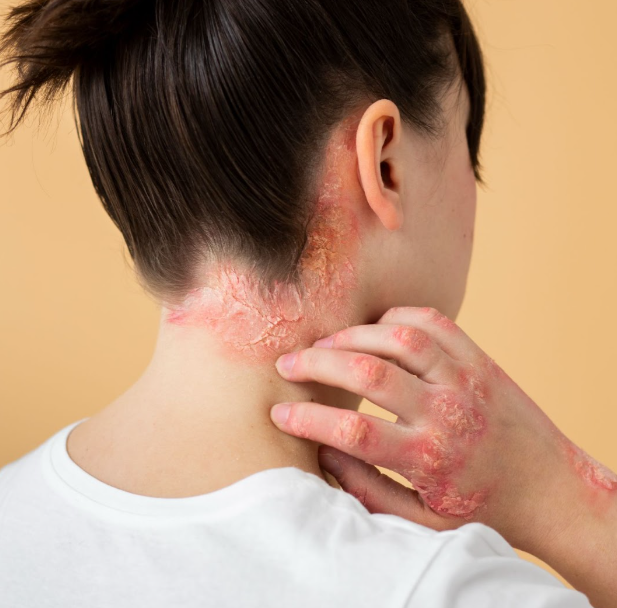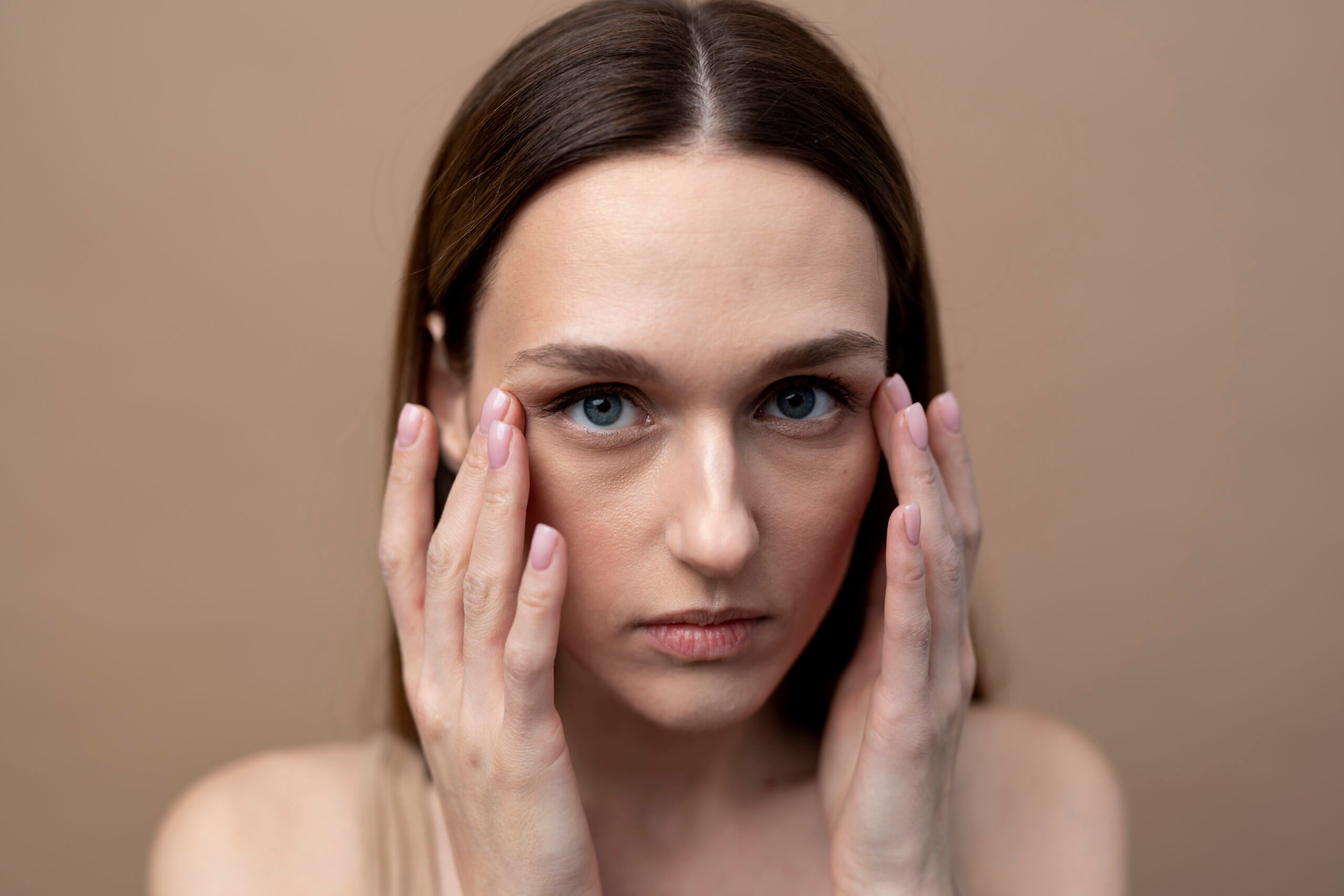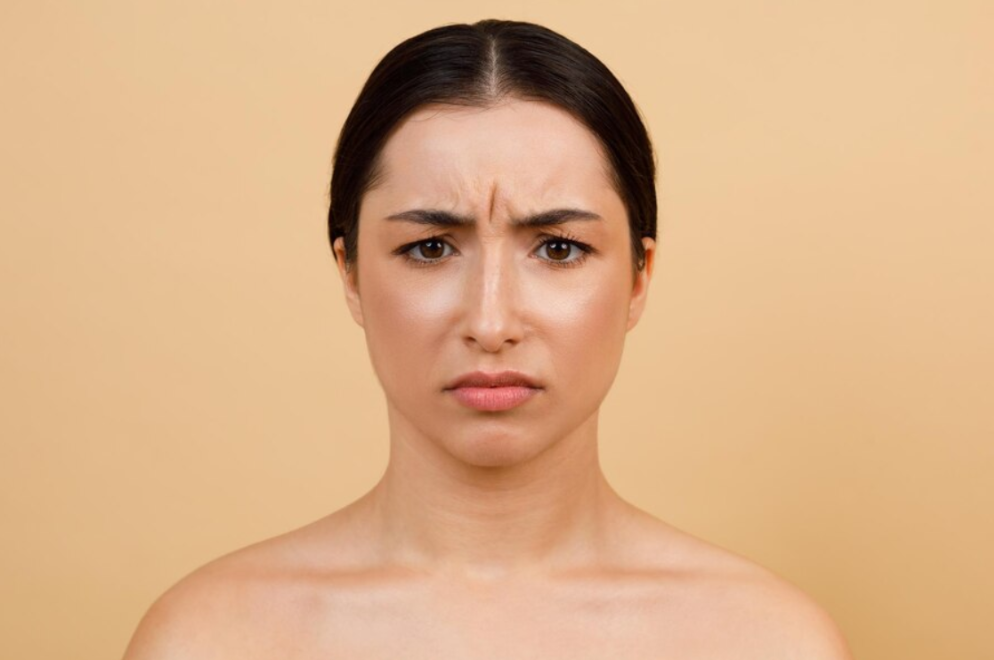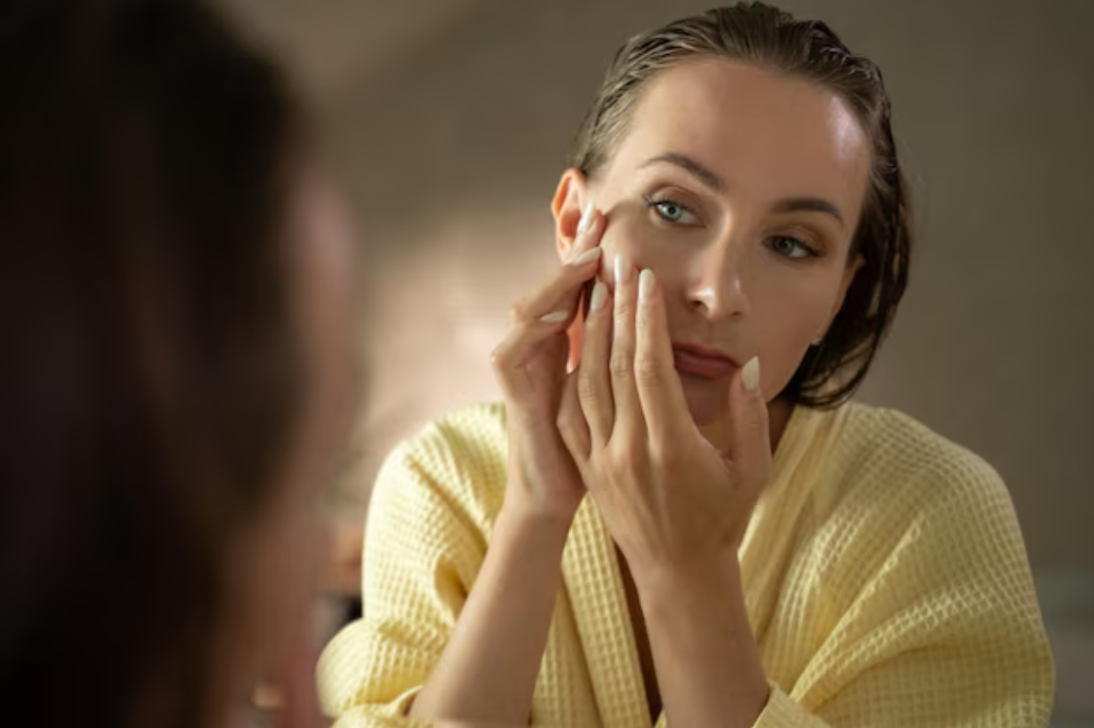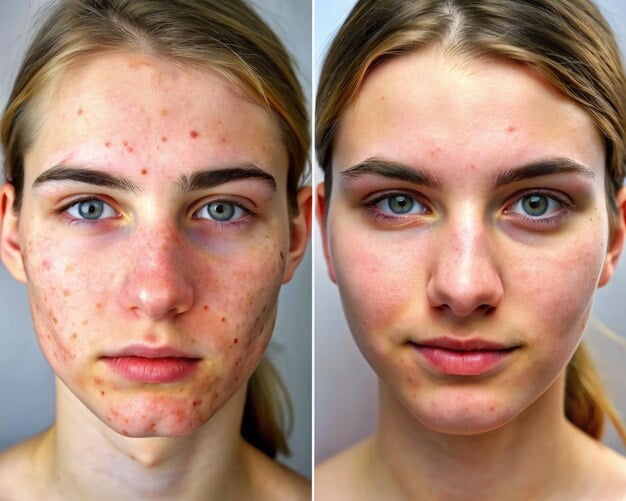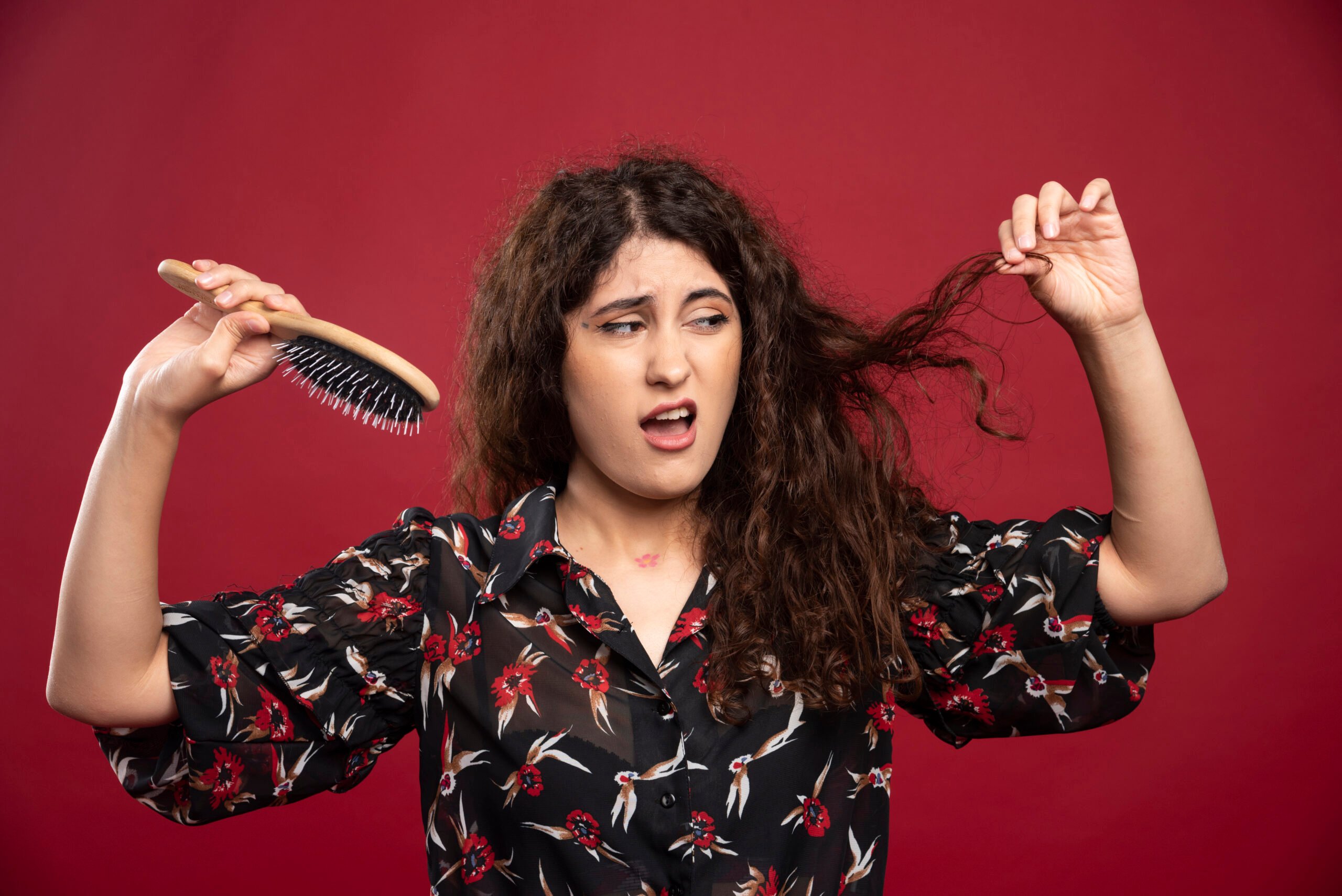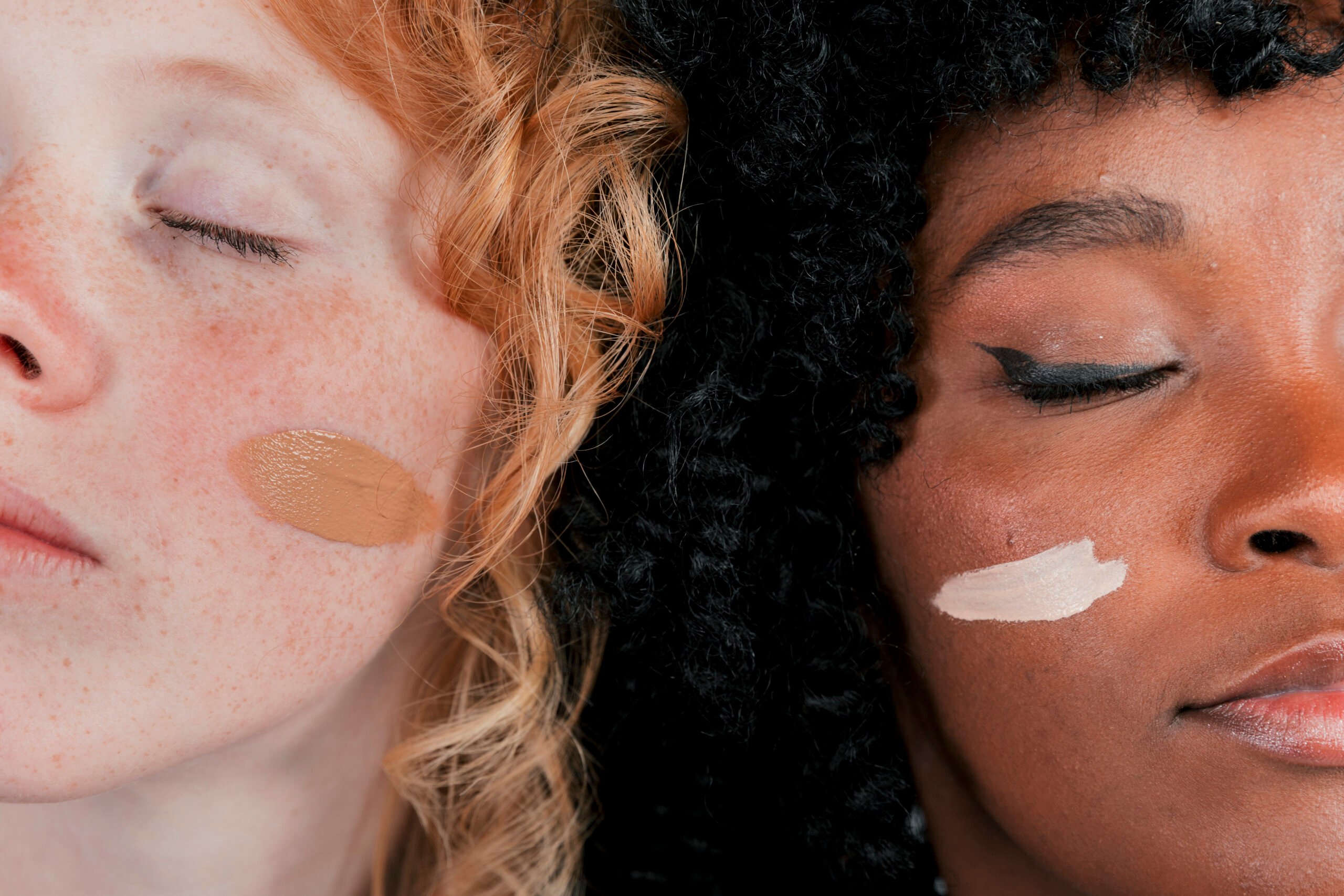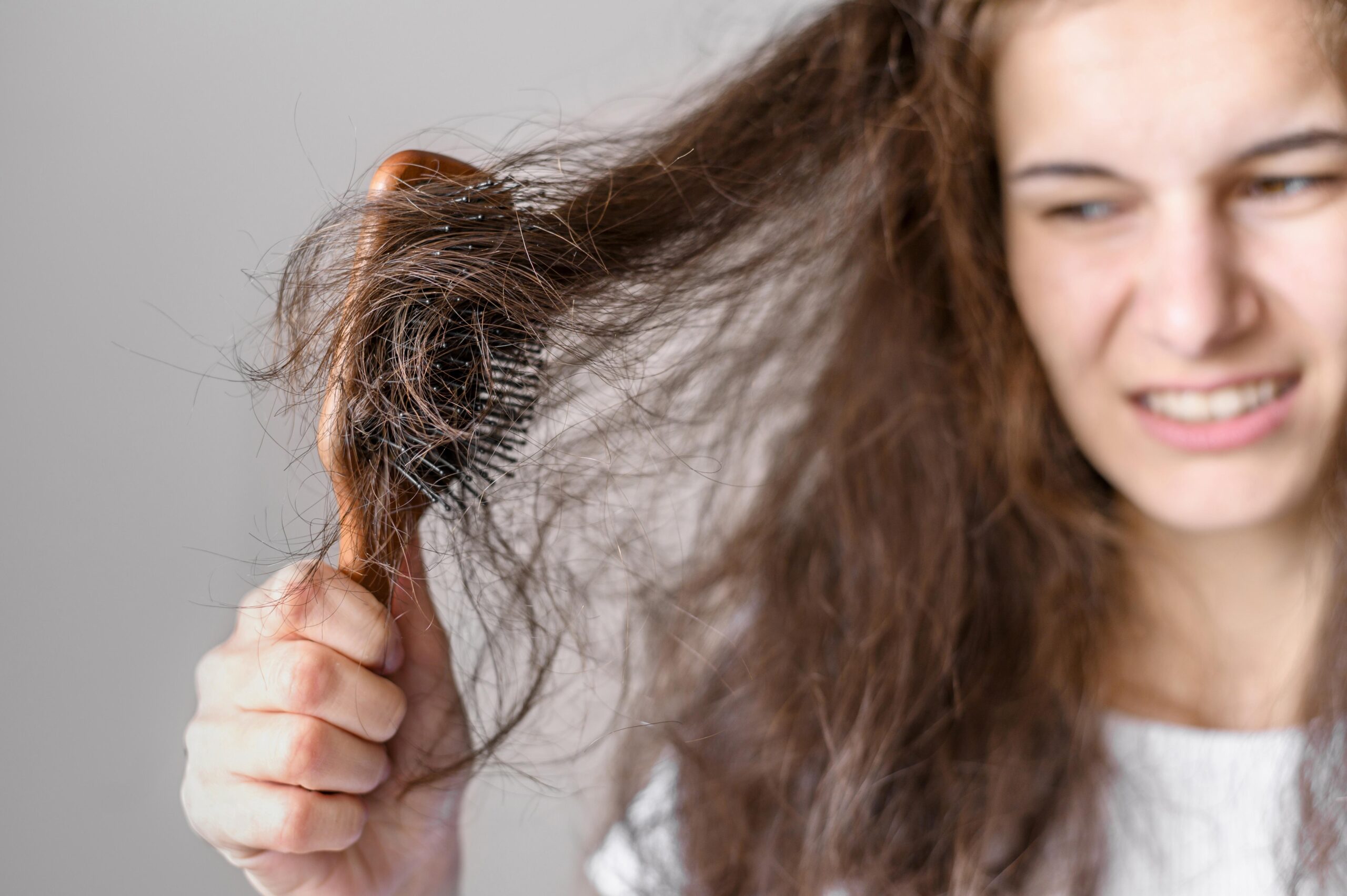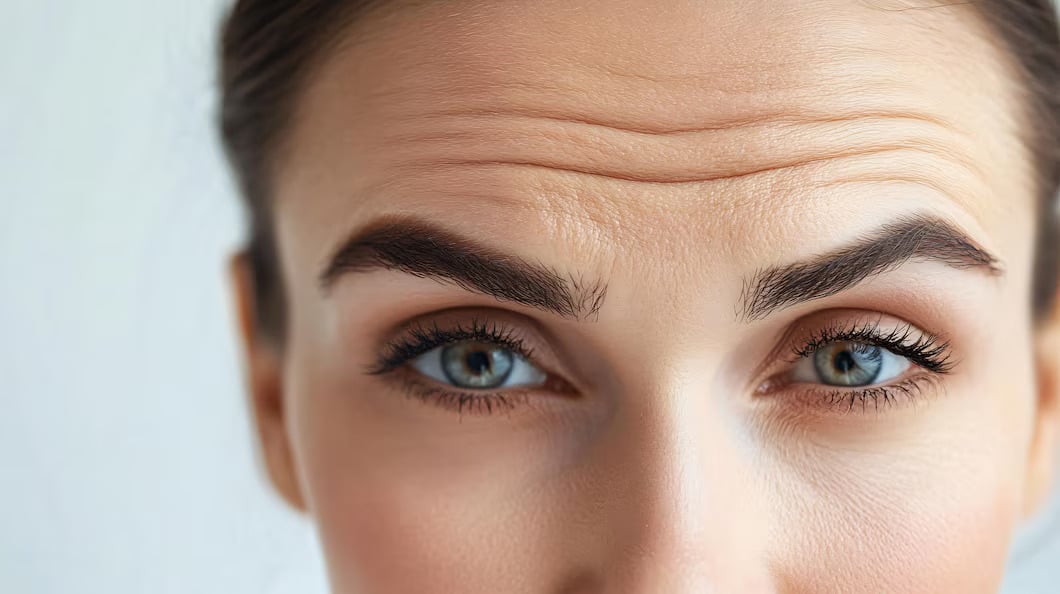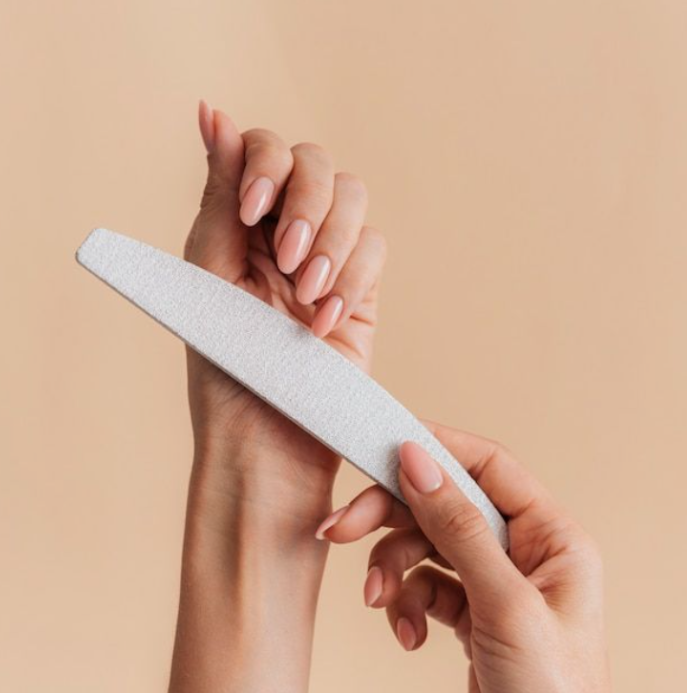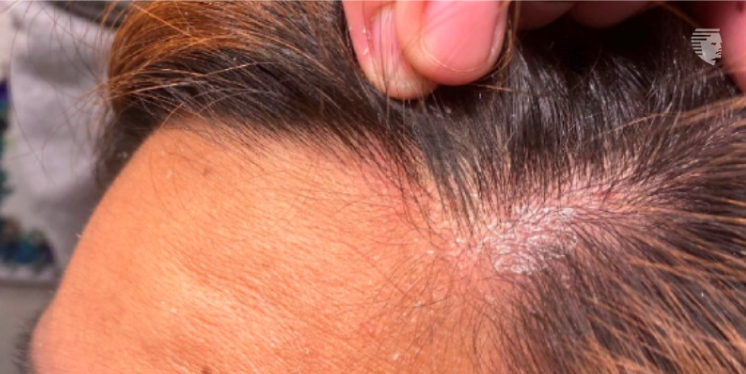Hair
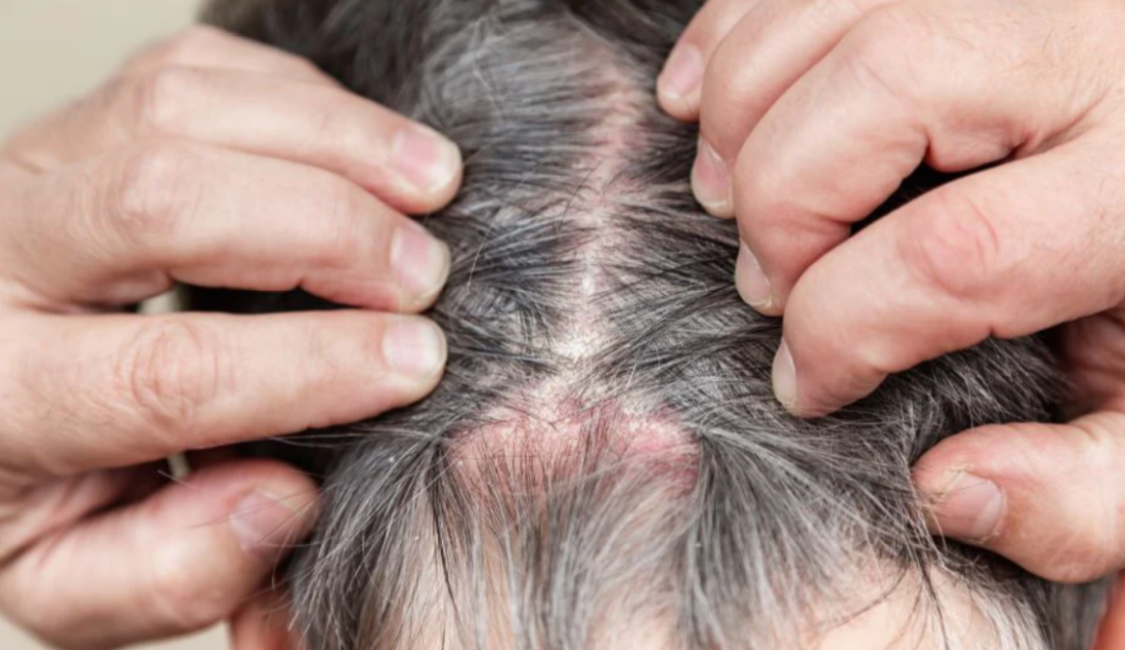
Hair
Scalp Folliculitis- Types, Causes, and Treatments
5 minutes read | 25 Jun 24
Folliculitis is a typical skin condition that causes the hair follicles to get inflamed due to bacterial, fungal, and other irritants. 
The affected scalp area is covered with tiny red bumps or white-colored pimples, these aberrations cluster around the hair follicles. It can lead to inflammation within the hair follicle forming bumps on the scalp and hairline areas. Untreated non-healing infections could slowly get worse over time.
Types of Scalp Folliculitis
There are two primary types of folliculitis on the scalp, the superficial types and the deep types. The superficial affects only a part of the follicle while the deep type is quite severe and affects the entire follicle.
Bacterial Folliculitis -
The symptoms include itchy rash and pus-filled bumps. When hair follicles get infected due to the Staph bacteria, it causes bacterial Folliculitis. This bacteria can harm hair follicles when they enter the skin through a small cut or any other wound. Most scalp folliculitis triggered by staph bacteria or others are naturally resolved without a treatment course.
Hot Tub Rash -
It is also called pseudomonas folliculitis. The infection forms rashes that appear as round bumps. These bumps can itch badly and are usually caused by the pseudomonas bacteria that are found in heated water areas like hot tubs, heated pools, and water slides.
Razor Bumps -
It is known as pseudofolliculitis barbae. It is a rash caused by ingrown hairs rather than folliculitis. It affects those people who have very curly hair and who shave deeply. Razor bumps can be noticed on the area of the neck and face.
Pityrosporum Folliculitis -
It is a type of itchy rash with pus-filled tiny bumps found on the back and chest area. It is mostly caused by yeast infection. Based on specific viral types of infections, the treatment plan can also vary accordingly.
Gram-Negative Folliculitis -
This infection manifests as pus-filled small bumps around the mouth and nose areas. It can develop in individuals who are getting antibiotic therapy on a long-term basis for pimples and acne.
Eosinophilic Folliculitis -
The infection causes severe itching and clusters of pimples and bumps that grow near the hair follicles present in the face and the upper body. It mostly affects those who are suffering from HIV and Acquired Immunodeficiency Virus Syndrome.
Furuncles and Carbuncles -
This infection sets in when hair follicles are strongly infected with staph bacteria. The patient may get a carbuncle, which means a cluster of boils or there may appear several boils that are inflamed and painful.
Sycosis Barbae -
It is a skin infection occurring near the hair follicles for people who shave regularly.
Causes of Scalp Folliculitis
The reason for the condition known as scalp folliculitis is contemplated as an extreme inflammatory reaction to various components found in the hair follicles such as microorganisms. They include yeasts, mites, and bacteria. You can contract the infection if your hair follicles are damaged.
The damage can happen in numerous ways, it can be caused by rubbing aggressively or scratching the head or by shaving. A badly damaged follicle can be more vulnerable to infections. An inflamed hair follicle can appear reddish and cause pain.
Scalp Folliculitis Treatment
You can consult a dermatologist for the treatment of inflamed folliculitis on the scalp. Your doctor will examine the infected area to know the underlying cause. For a proper treatment course, it is essential to get an accurate diagnosis. People exhibiting severe symptoms may need antibiotic treatment. It can be in the form of topical antibiotic cream applied over the affected part.
While oral antifungal medications can work perfectly for scalp folliculitis pityrosporum infection. You can also get a topical antifungal lotion or cream. Using an effective dandruff shampoo can also help reduce the symptoms. People infected with the molluscum virus can opt for cryotherapy. Mites-related folliculitis can be treated with a topical permethrin cream.
PRP & GFC Hair Treatment
The importance of consulting a trichologist or a dermatologist cannot be undermined for the successful treatment of scalp folliculitis. Bodycraft clinic offers PRP hair regrowth treatment and GFC hair fall treatment. They are some of the best clinical remedies to treat folliculitis and improve your scalp health.
PRP hair regrowth treatment can help revive natural hair growth by increasing the blood flow to the hair follicles. In GFC hair loss treatment, professional hair specialists use blood platelets to stimulate faster hair growth in the hair roots.
The Takeaway
Scalp infections can be dealt and managed by adopting the right approach. For this, you must know the underlying causes and adopt a good scalp care routine. Seeking the help of a certified dermatologist at Bodycraft Clinic for the treatment of scalp folliculitis can give the best results.
FAQ's Around Scalp Folliculitis
1. Is The Folliculitis Infection Contagious?
Most scalp folliculitis is non-contagious. However, folliculitis caused due to an infectious disease can spread from one individual to another via skin contact, and shared personal things like razors and hot tubs.
2. Can scalp folliculitis cause hair loss?
A mild type of folliculitis may heal, without any scarring or hair loss, in a few days by taking proper care. However, repeat infections may need you to visit a trichologist for prescription medicines. If left untreated, such scalp infections can cause heavy hair loss and scarring. Advanced clinical treatment such as GFC hair loss treatment and QR678 hair regrowth treatment at Bodycraft Clinic can help restore lost hair and improve the quality.
3. How to get rid of folliculitis on your scalp?
Your doctor may suggest antibiotic, topical, and oral solutions for folliculitis. One can also use topical creams and shampoos to fight the spread of fungal infections. For a mild scalp folliculitis infection, a healthcare specialist can suggest using a steroid cream to stop the itching. People with HIV or AIDS can be put on antiretroviral therapy. In severe cases, patients may be advised to go for a minor surgery or a laser hair removal treatment, especially for treating pseudofolliculitis barbae.
4. Is boils a type of folliculitis?
Yes, boils are a type of hair folliculitis. It indicates inflamed hair follicles due to injury, infection, or common scalp irritations. Most boils that feel tender and swollen and which are formed around the hair follicles, can be considered scalp folliculitis. A cluster of small-sized boils on the scalp is known as carbuncles.
5. Is scalp folliculitis curable?
Most scalp folliculitis can be cured or limited by taking greater care of your scalp and hair. You may need to have medical intervention for a medium to severe case of folliculitis. Without treatment, there is a risk of progression and added complications. Our treatment plans can noticeably improve your scalp quality, help reduce hair loss due to scalp folliculitis condition and boost healthy hair growth.
Related categories
Get a complimentary consultation today. Book now







































.png)

























-1.png)

